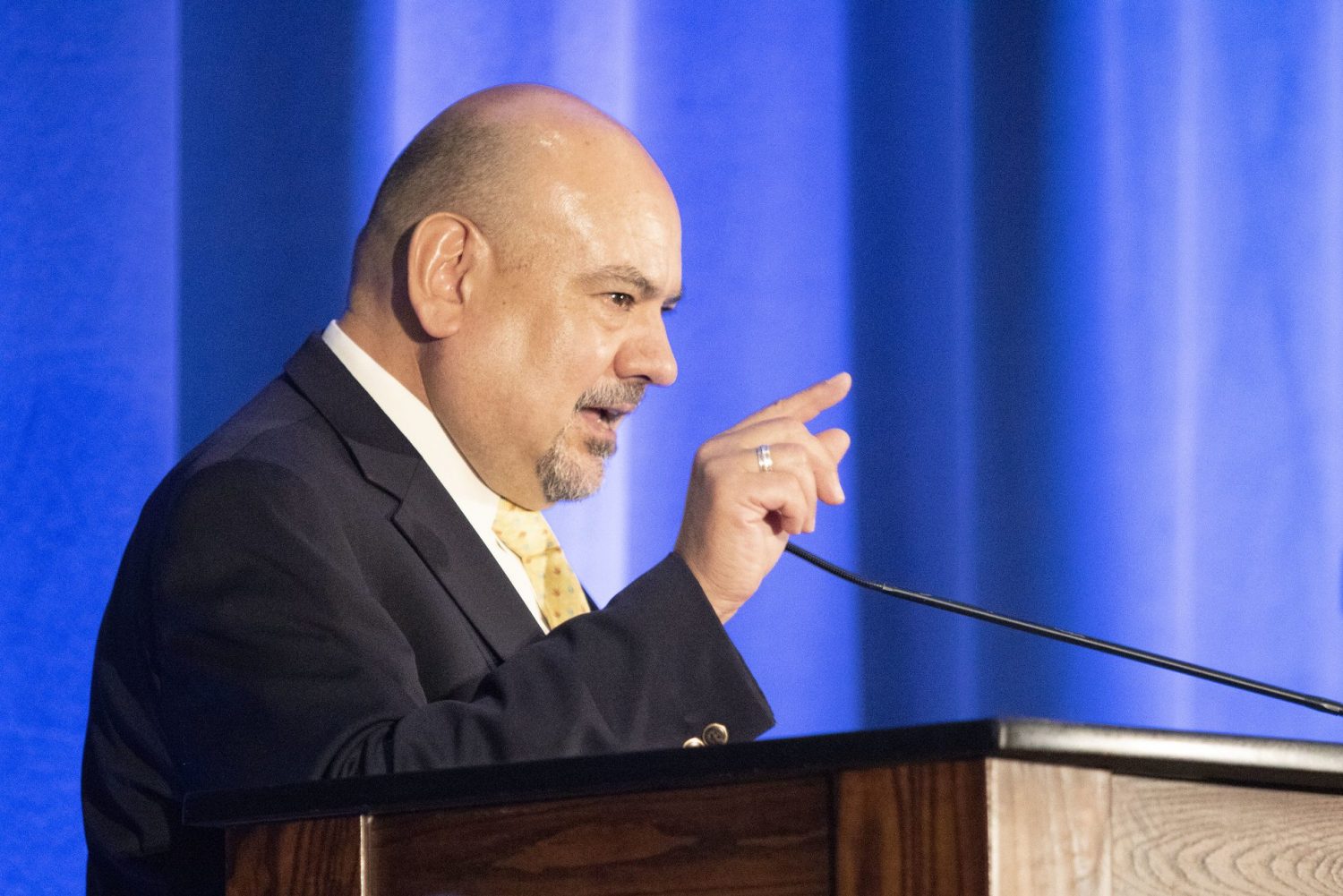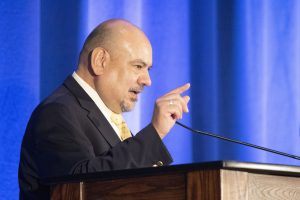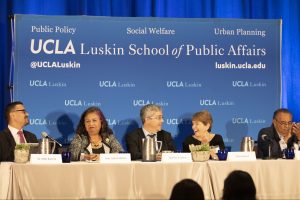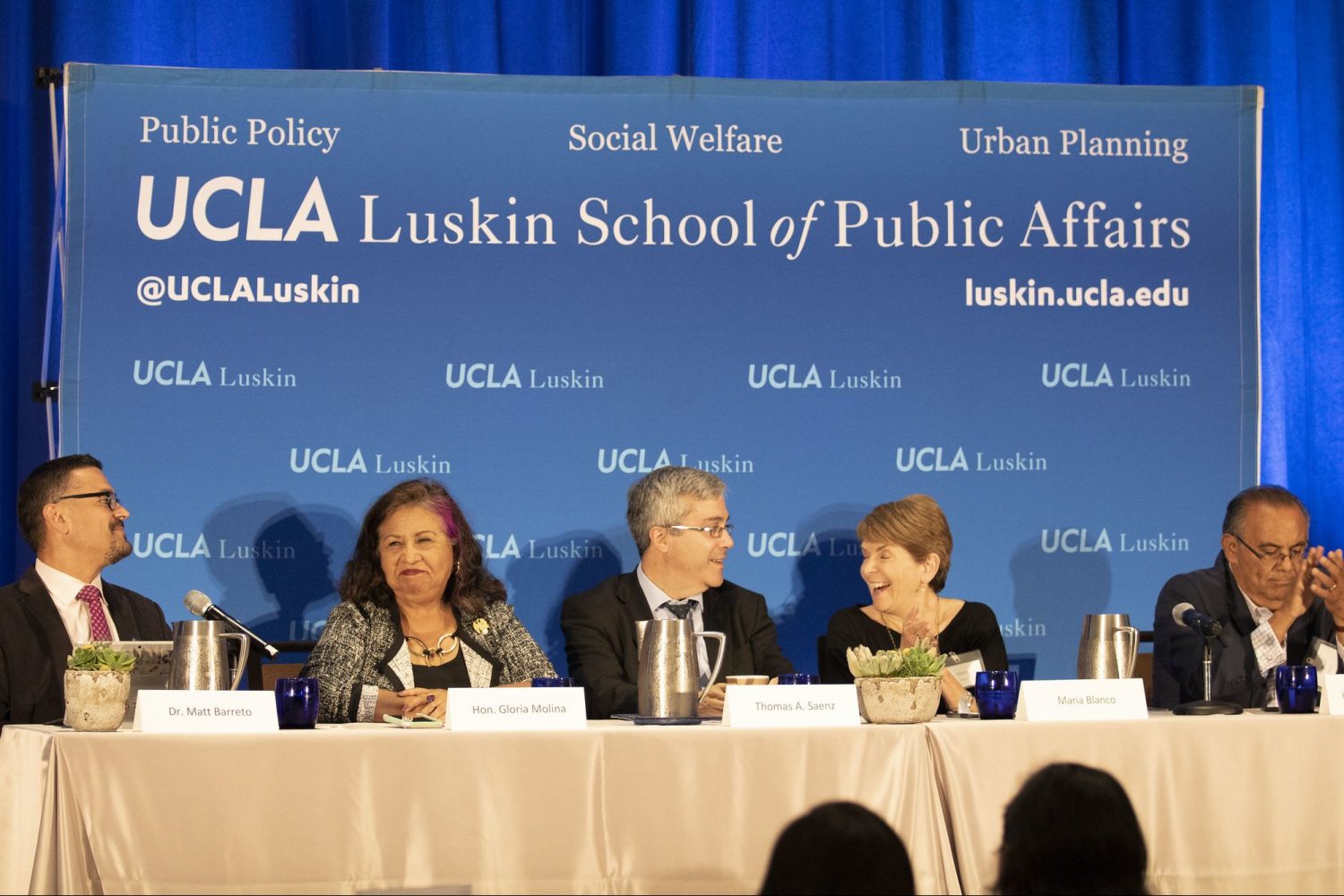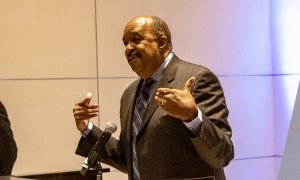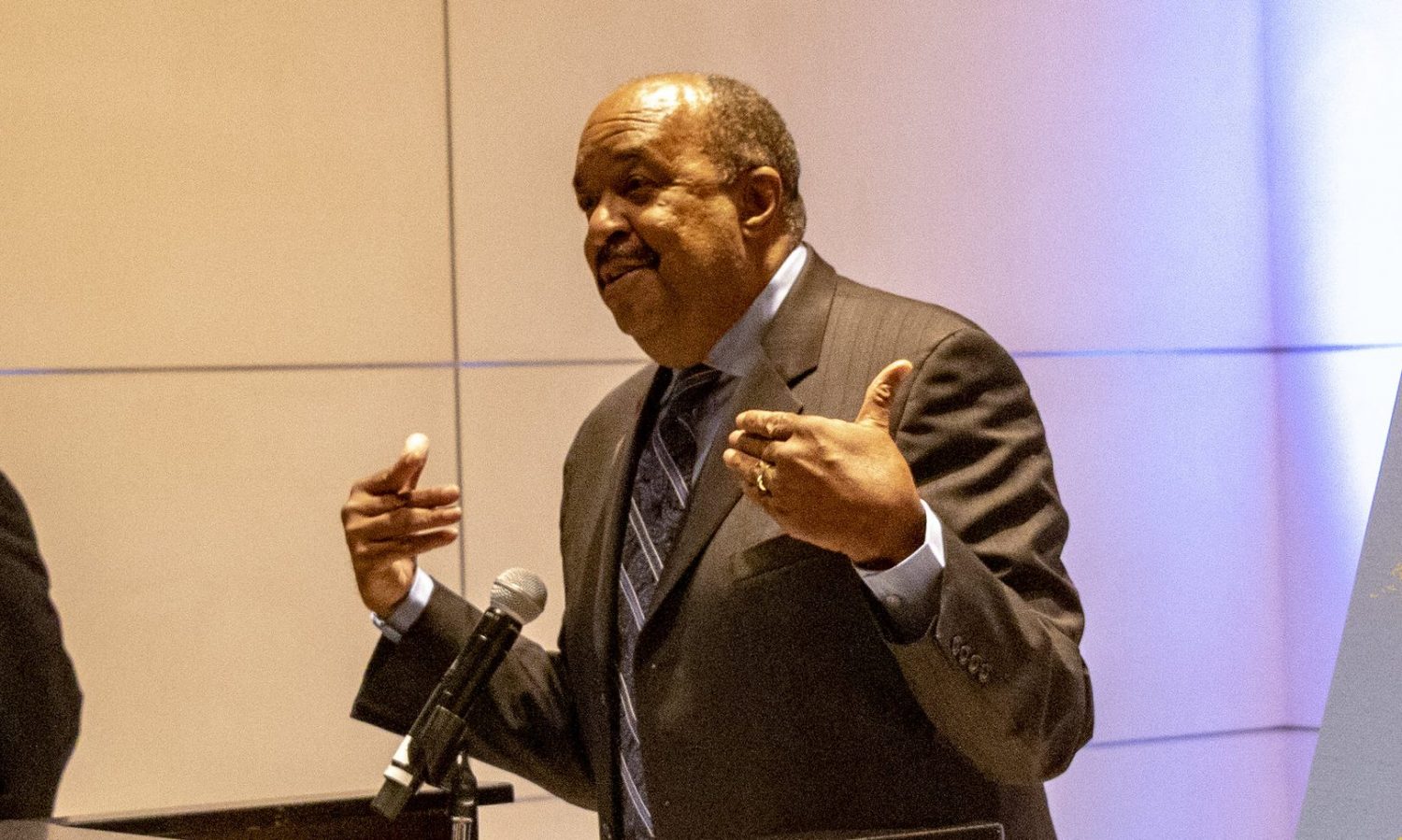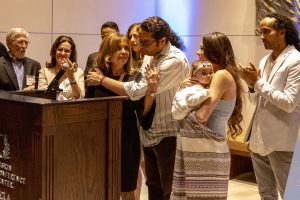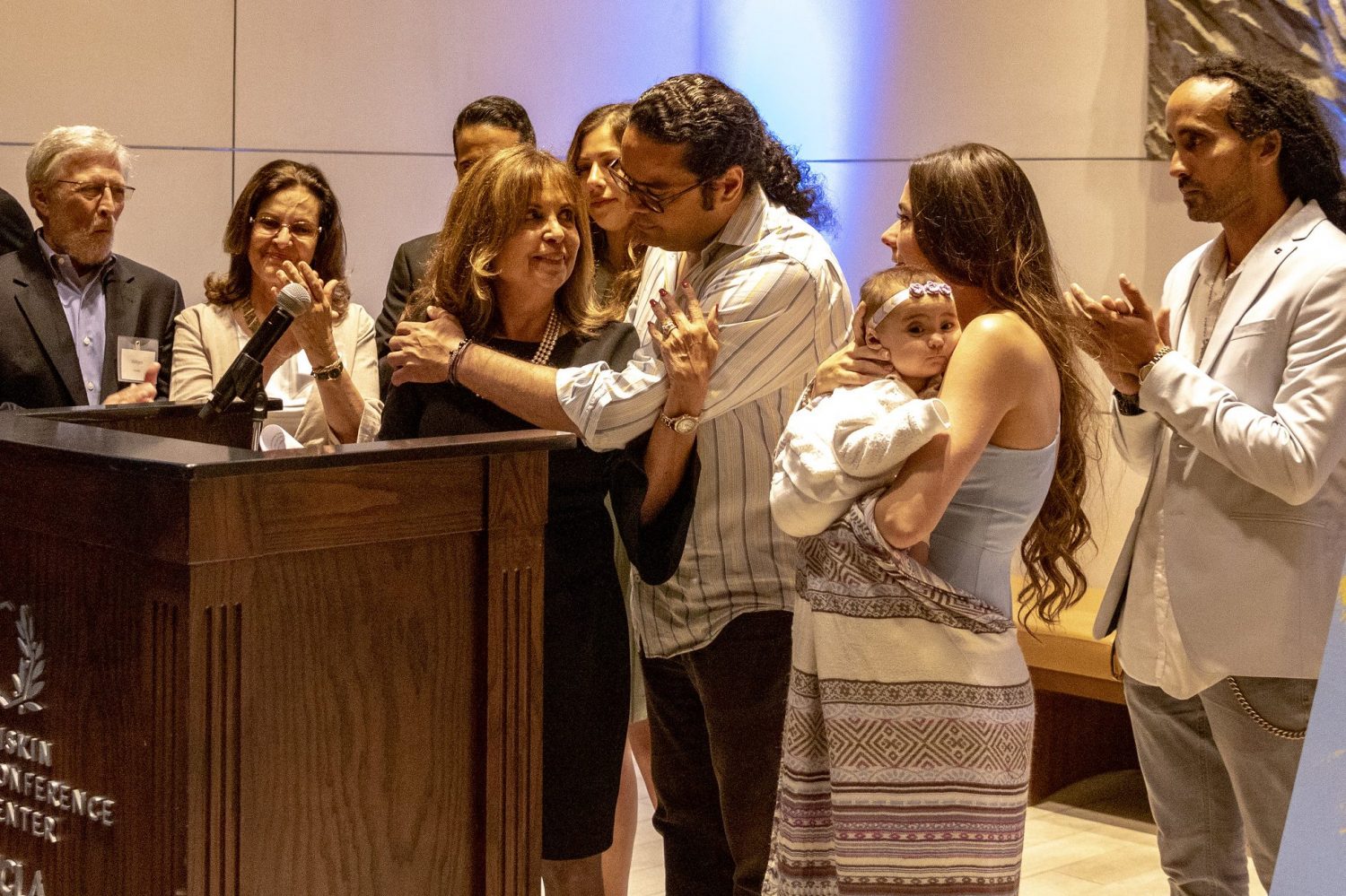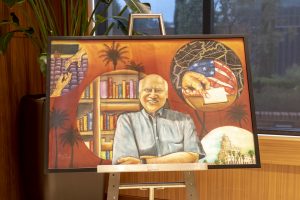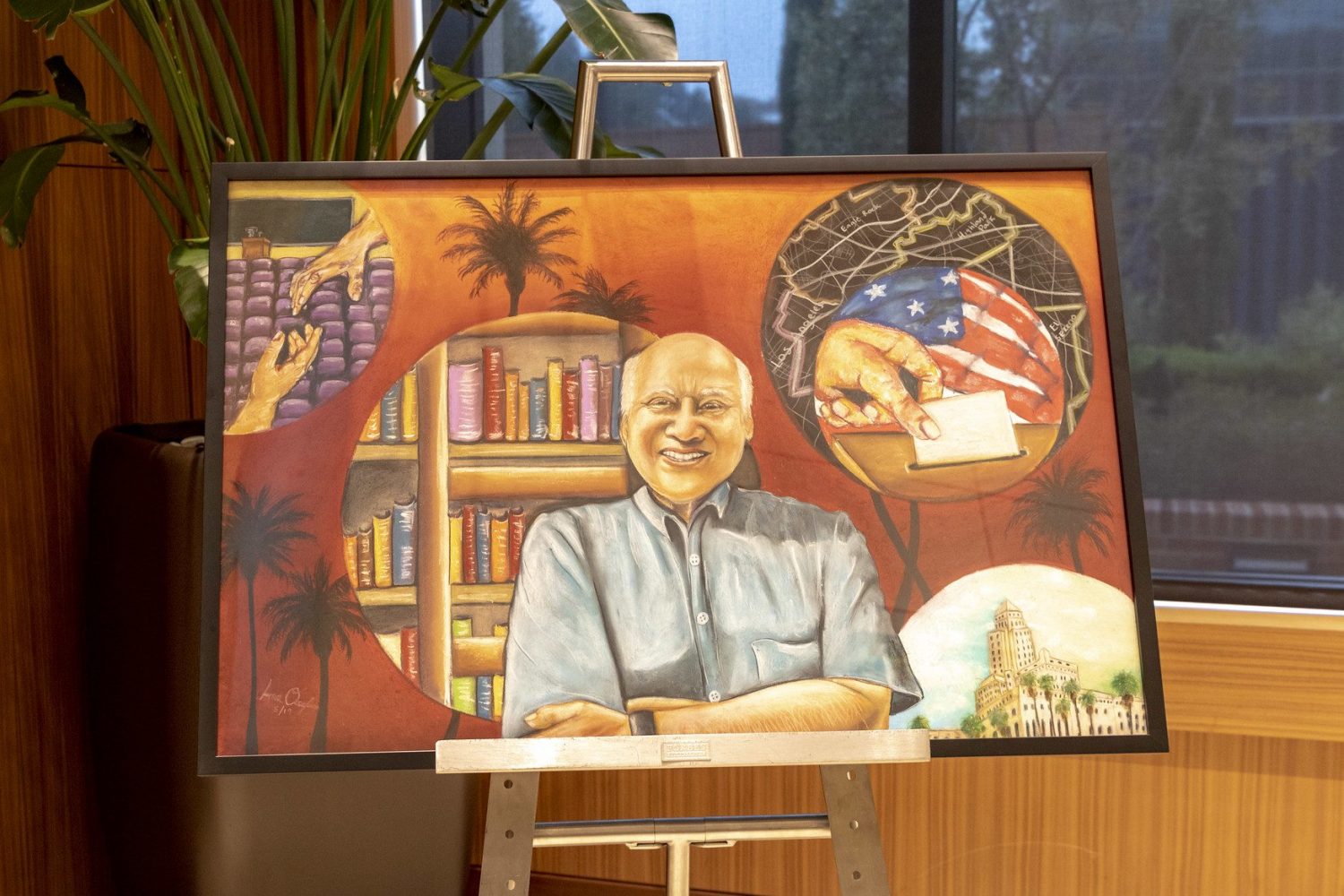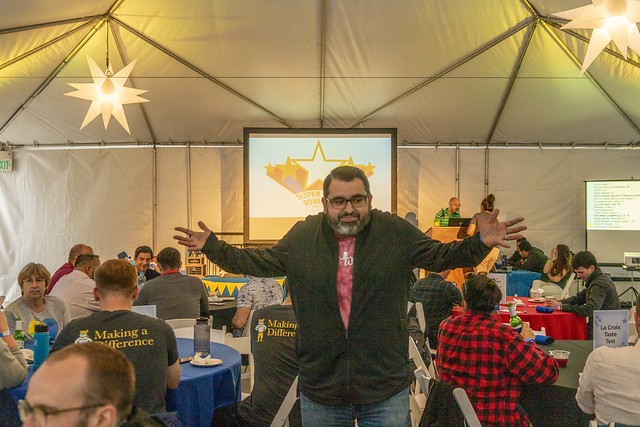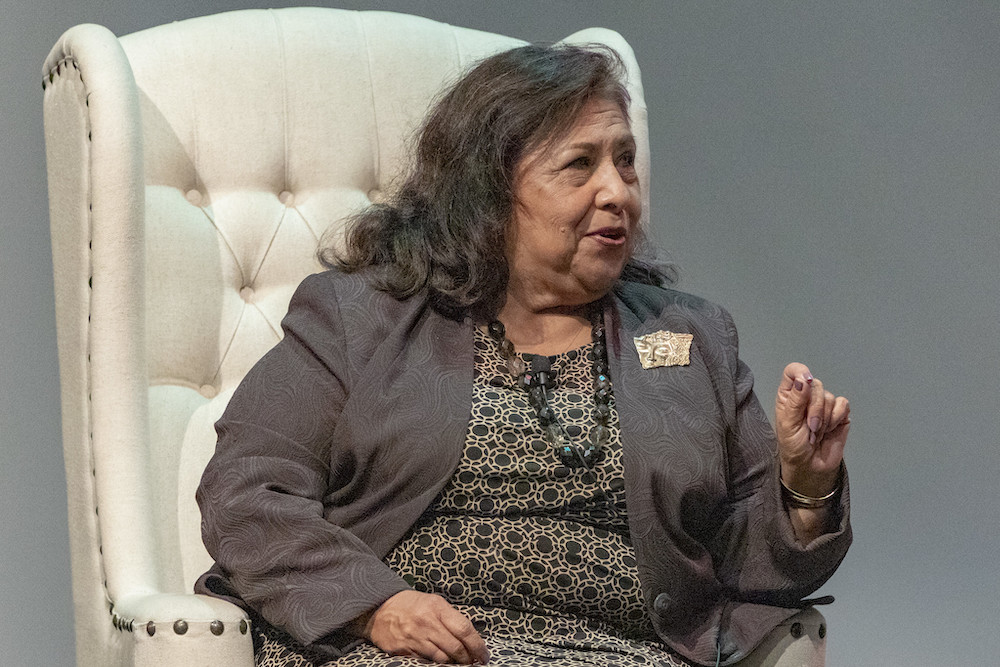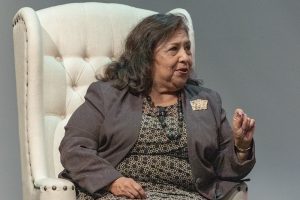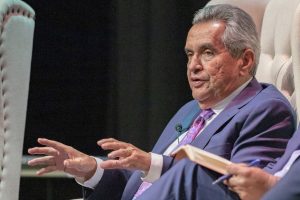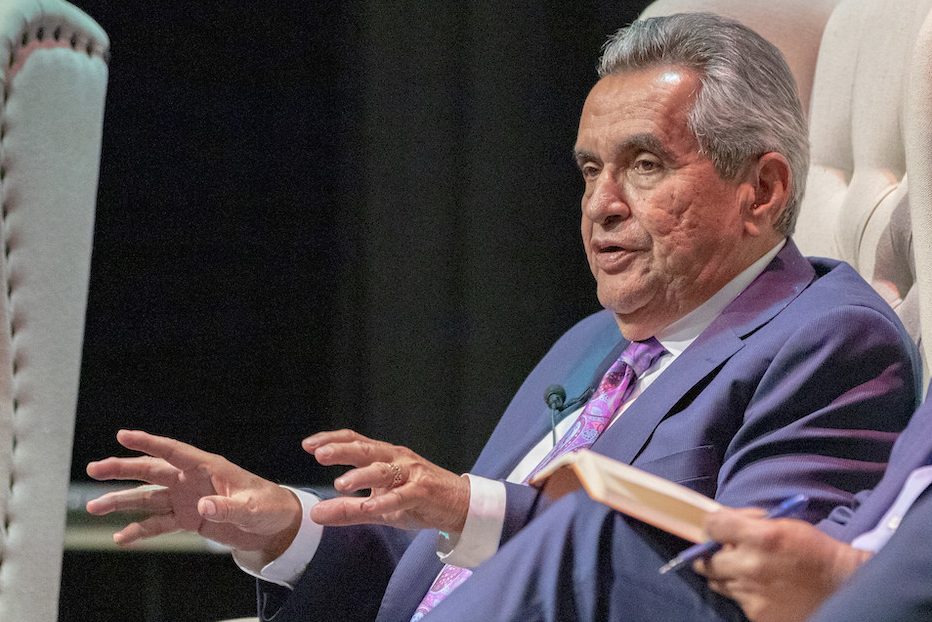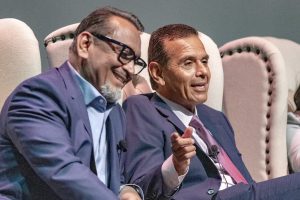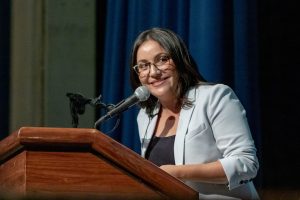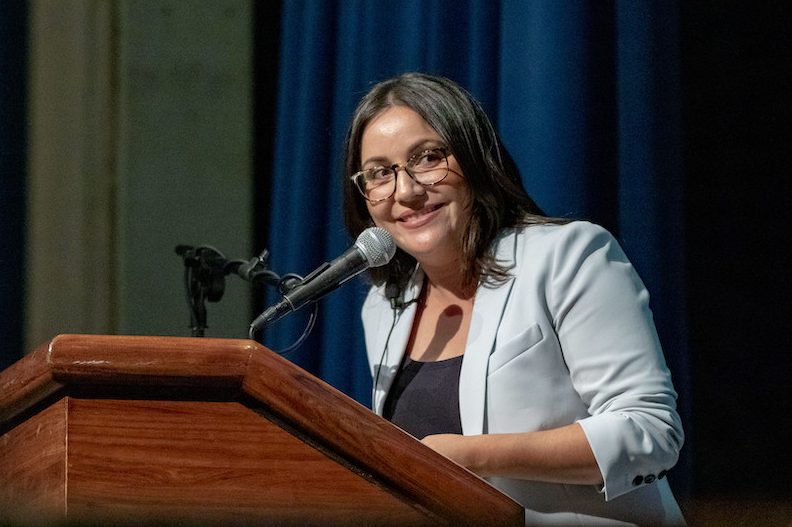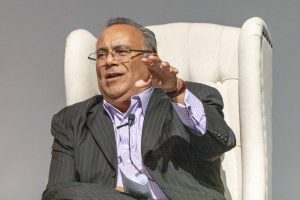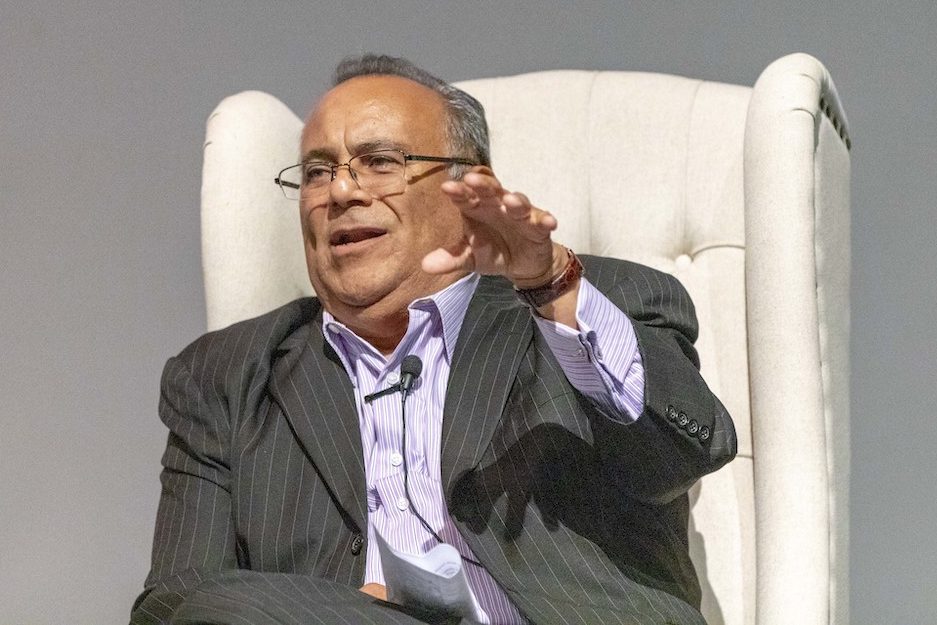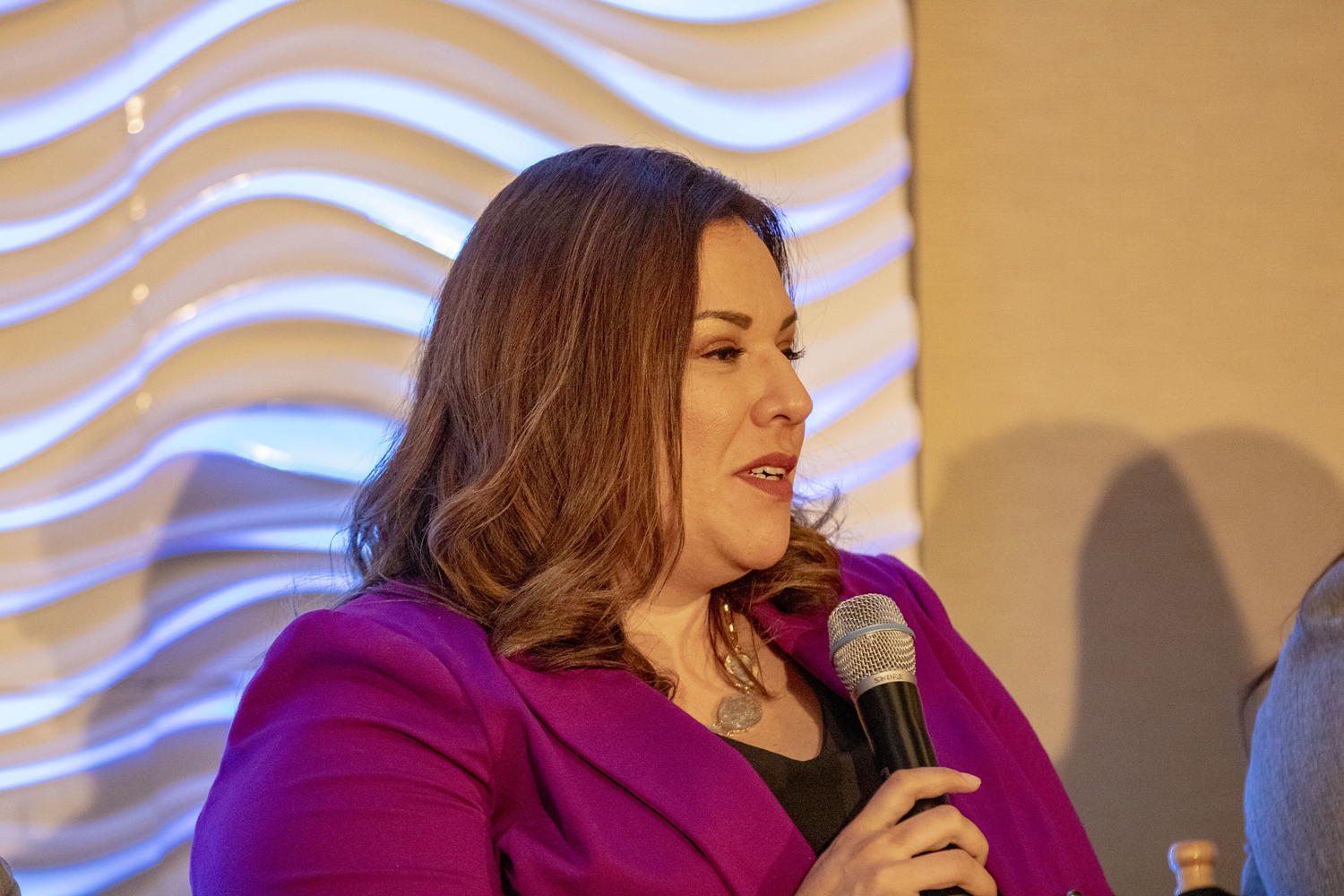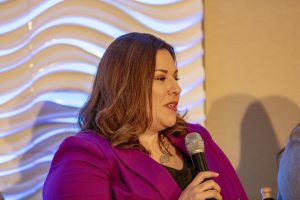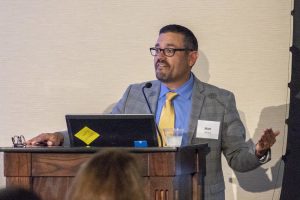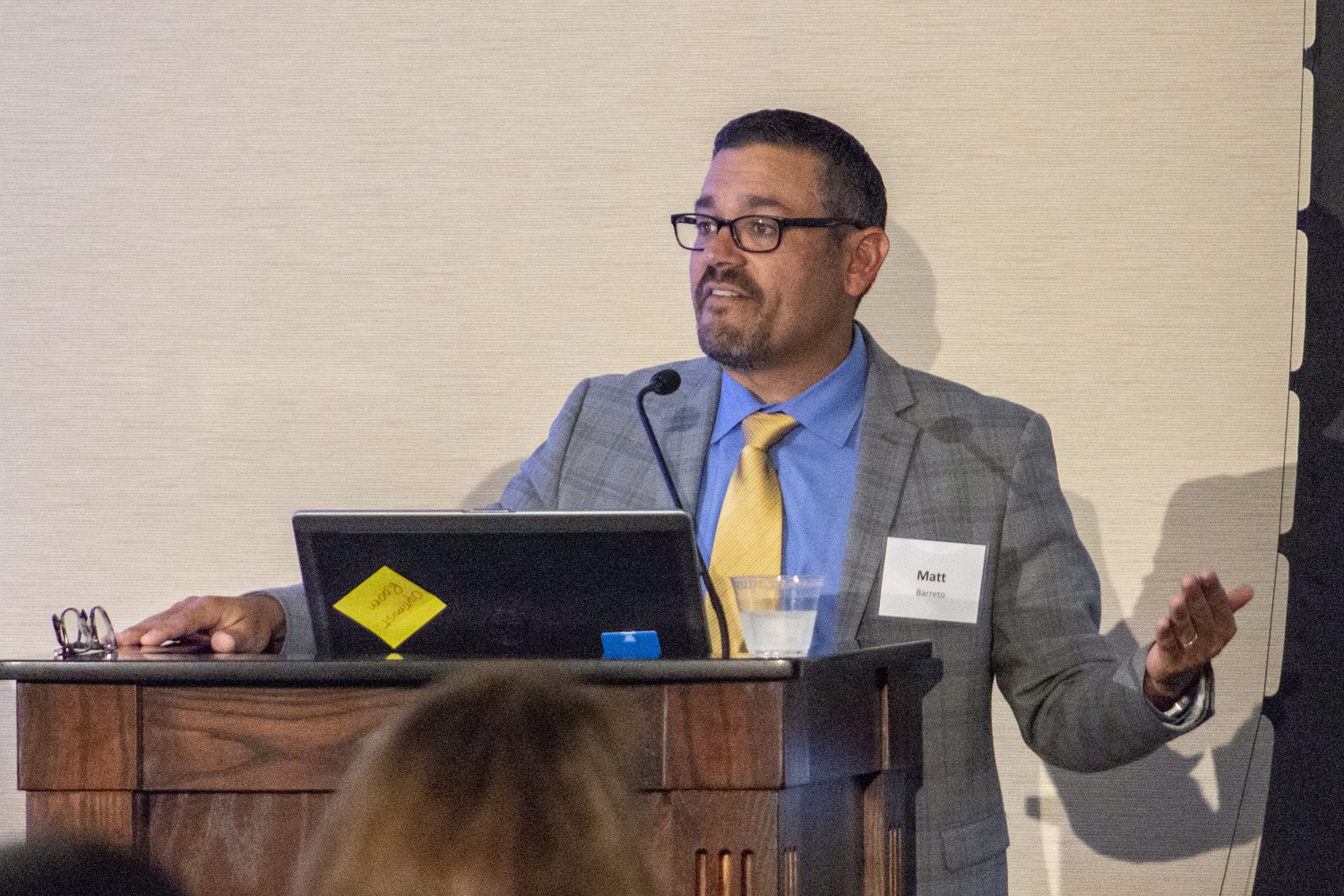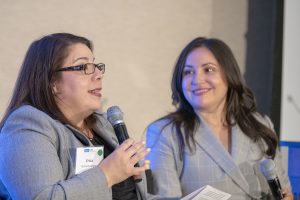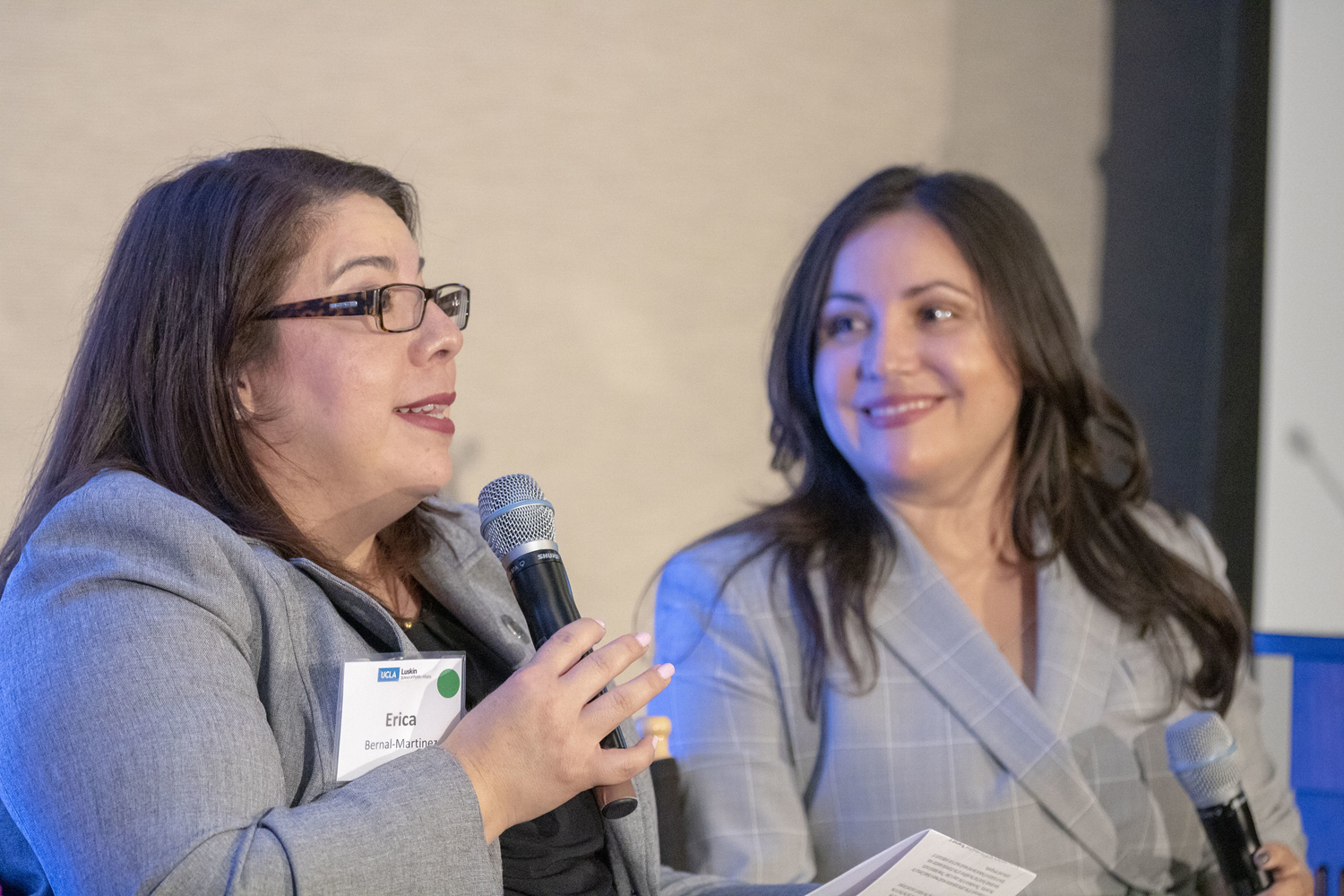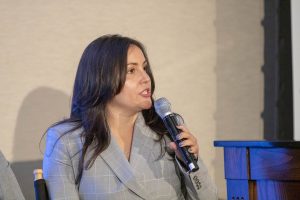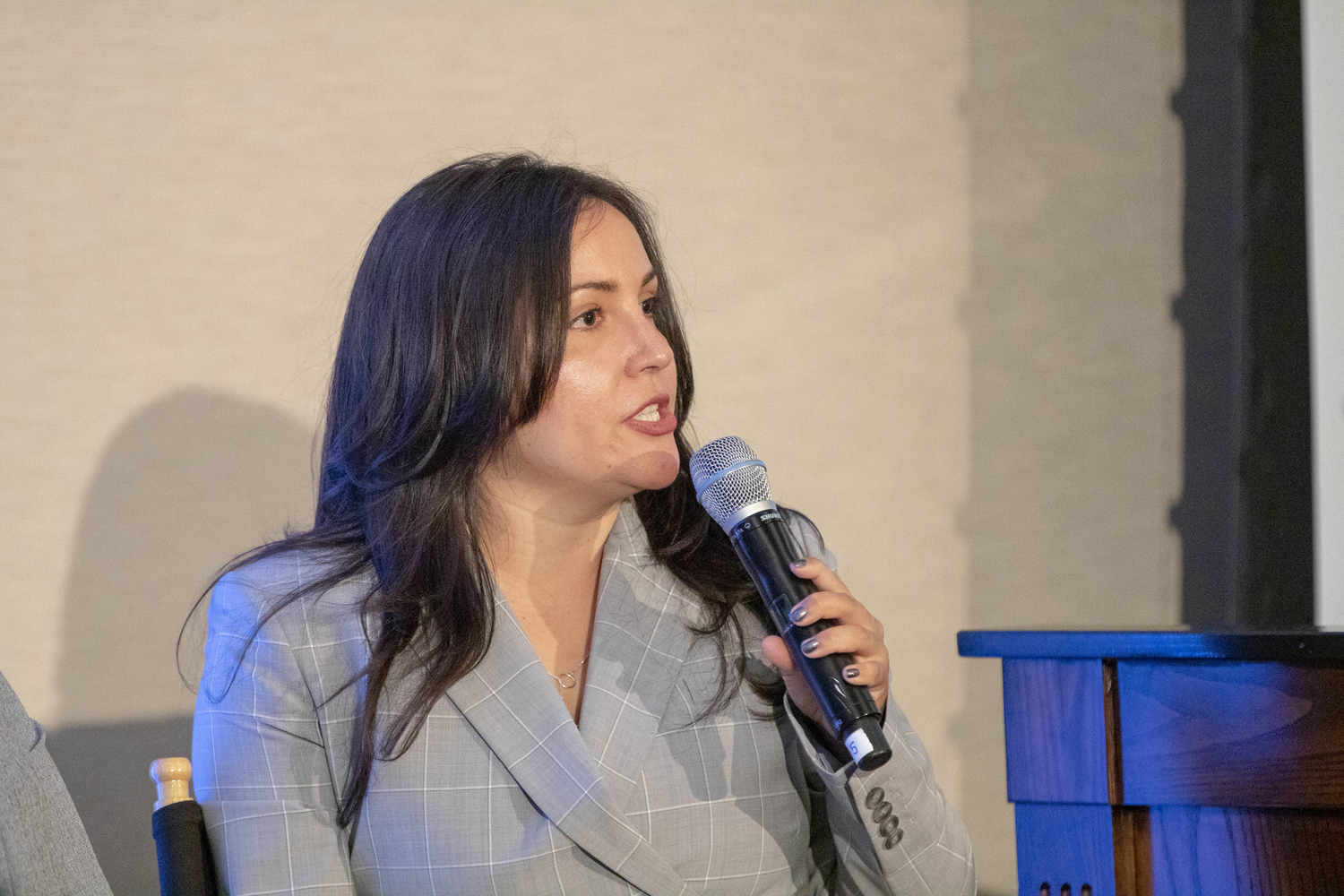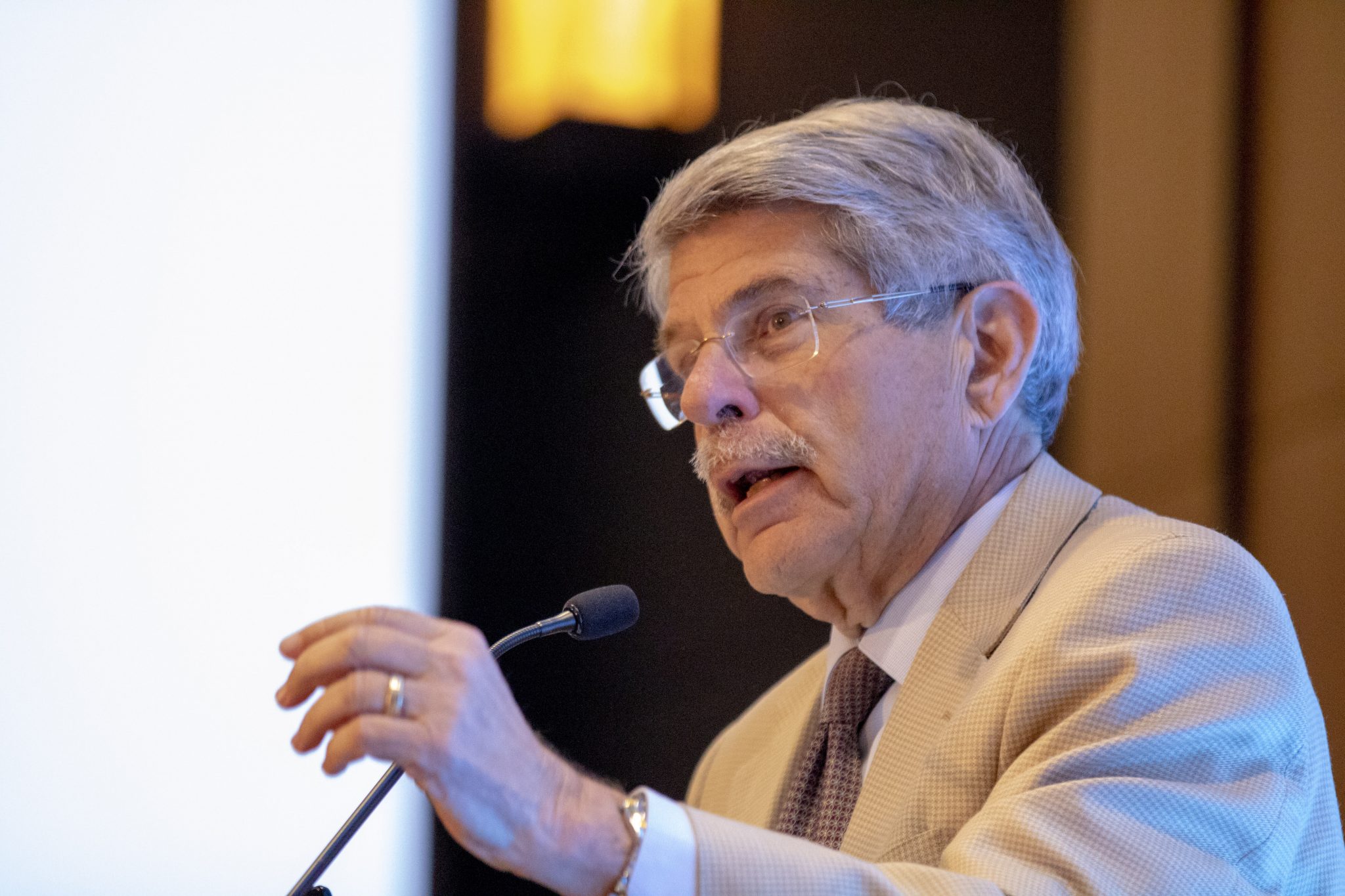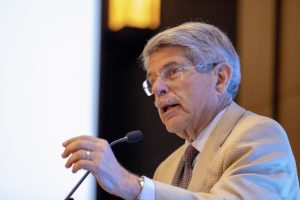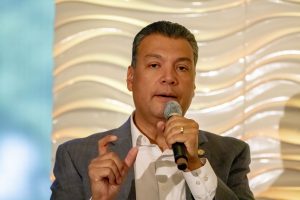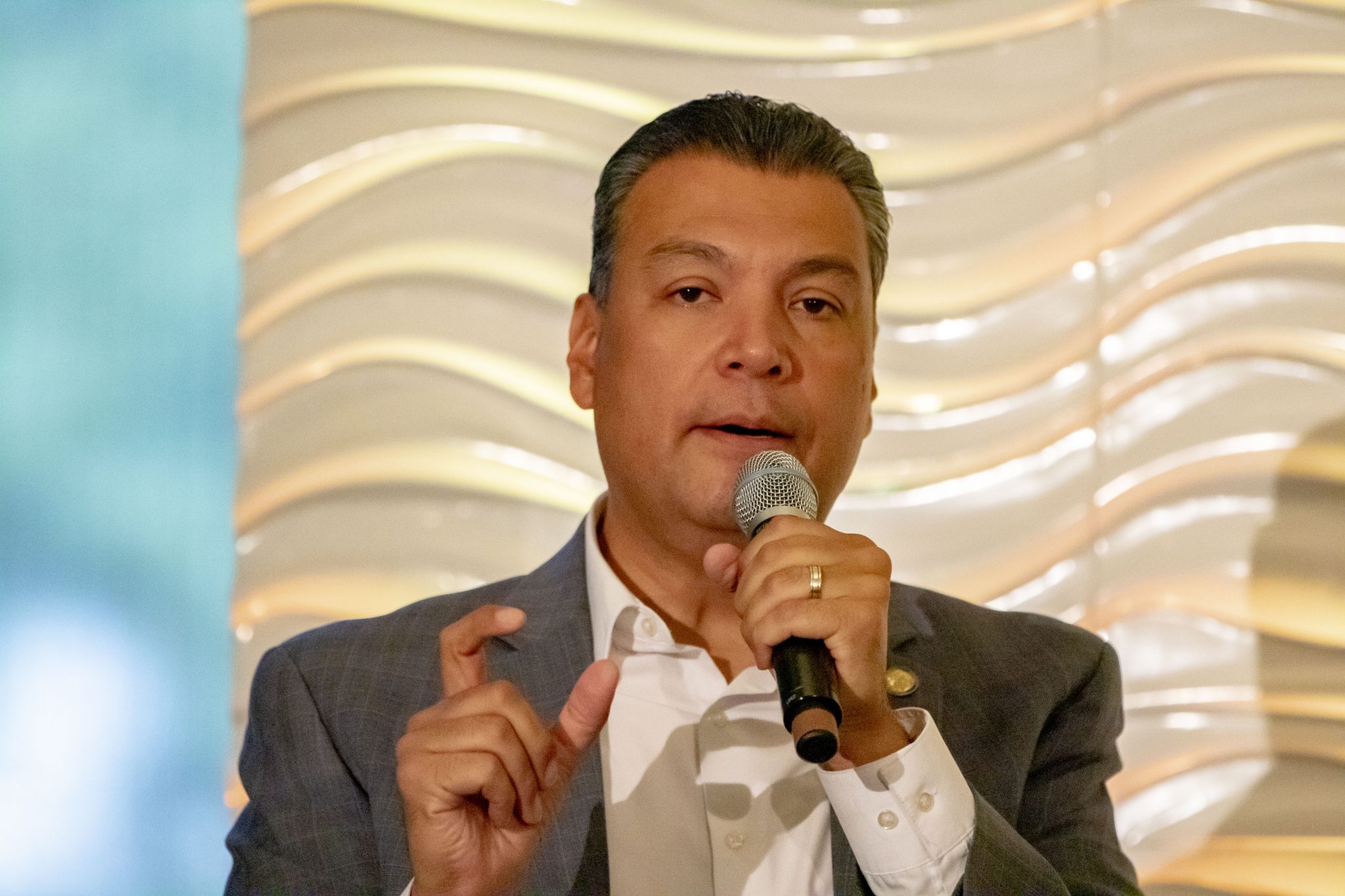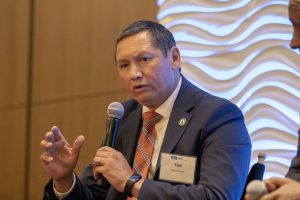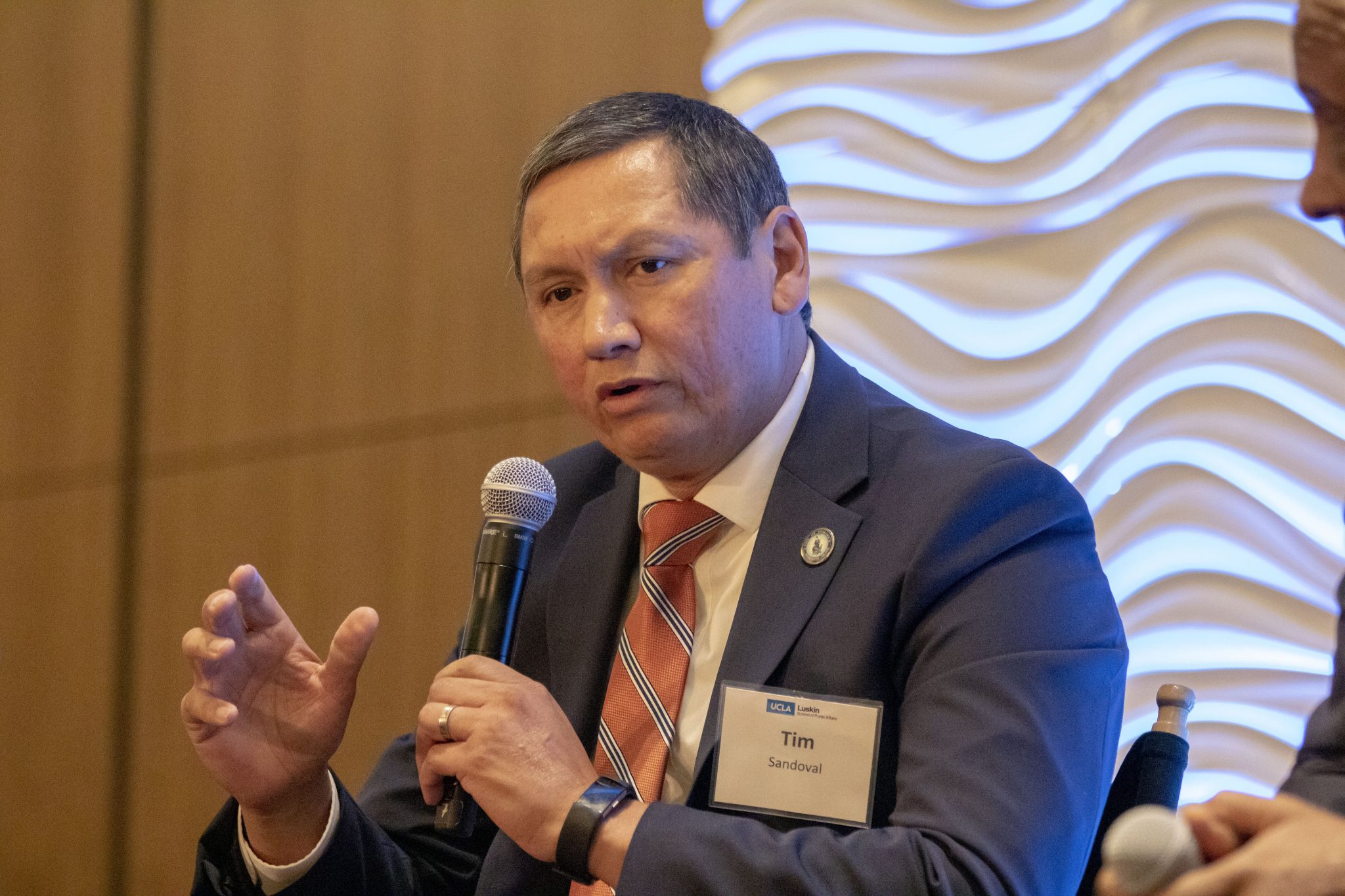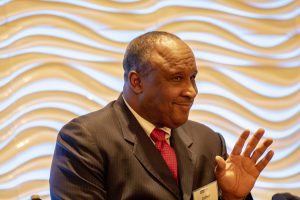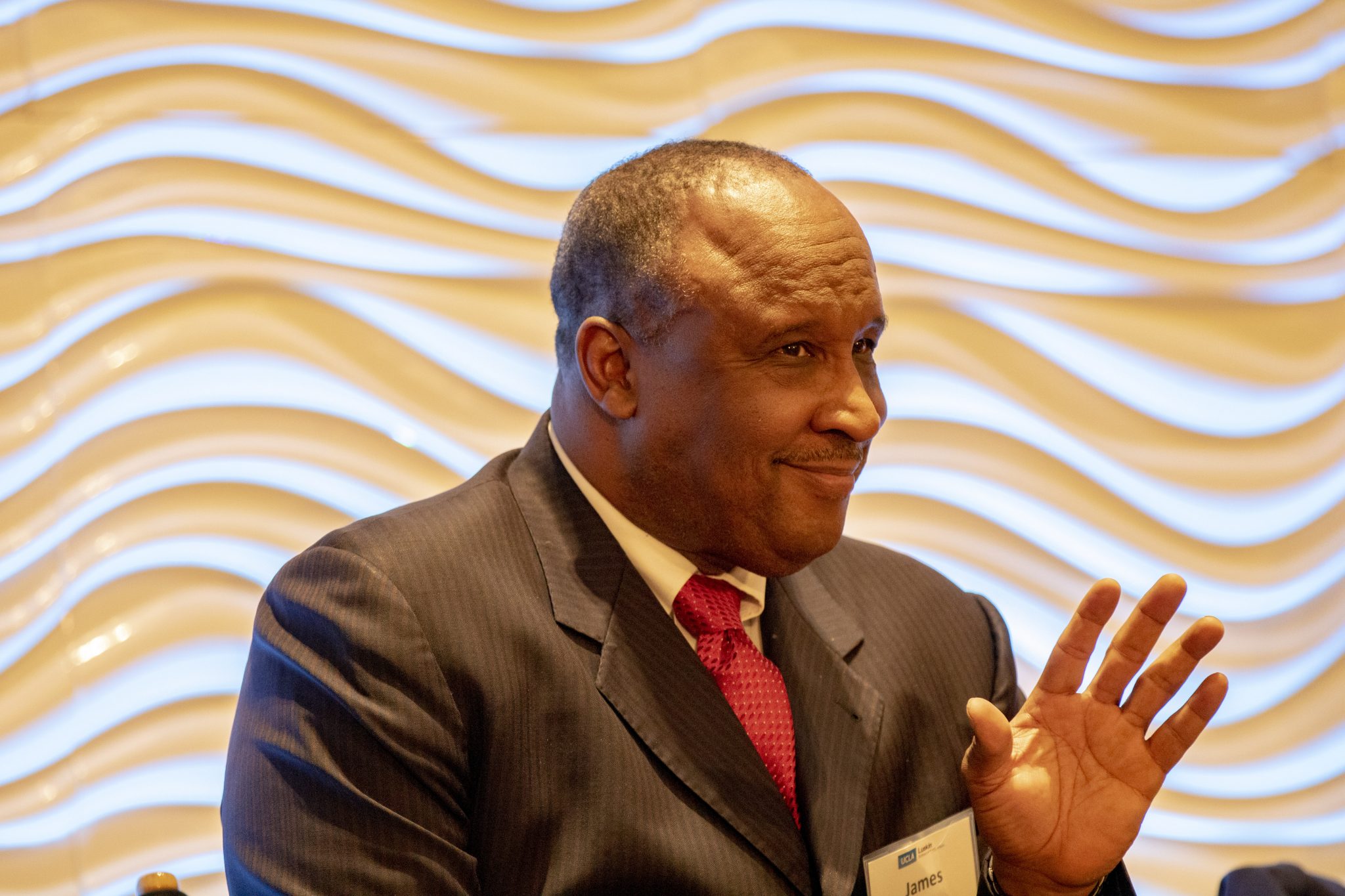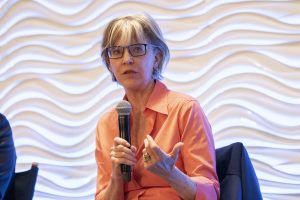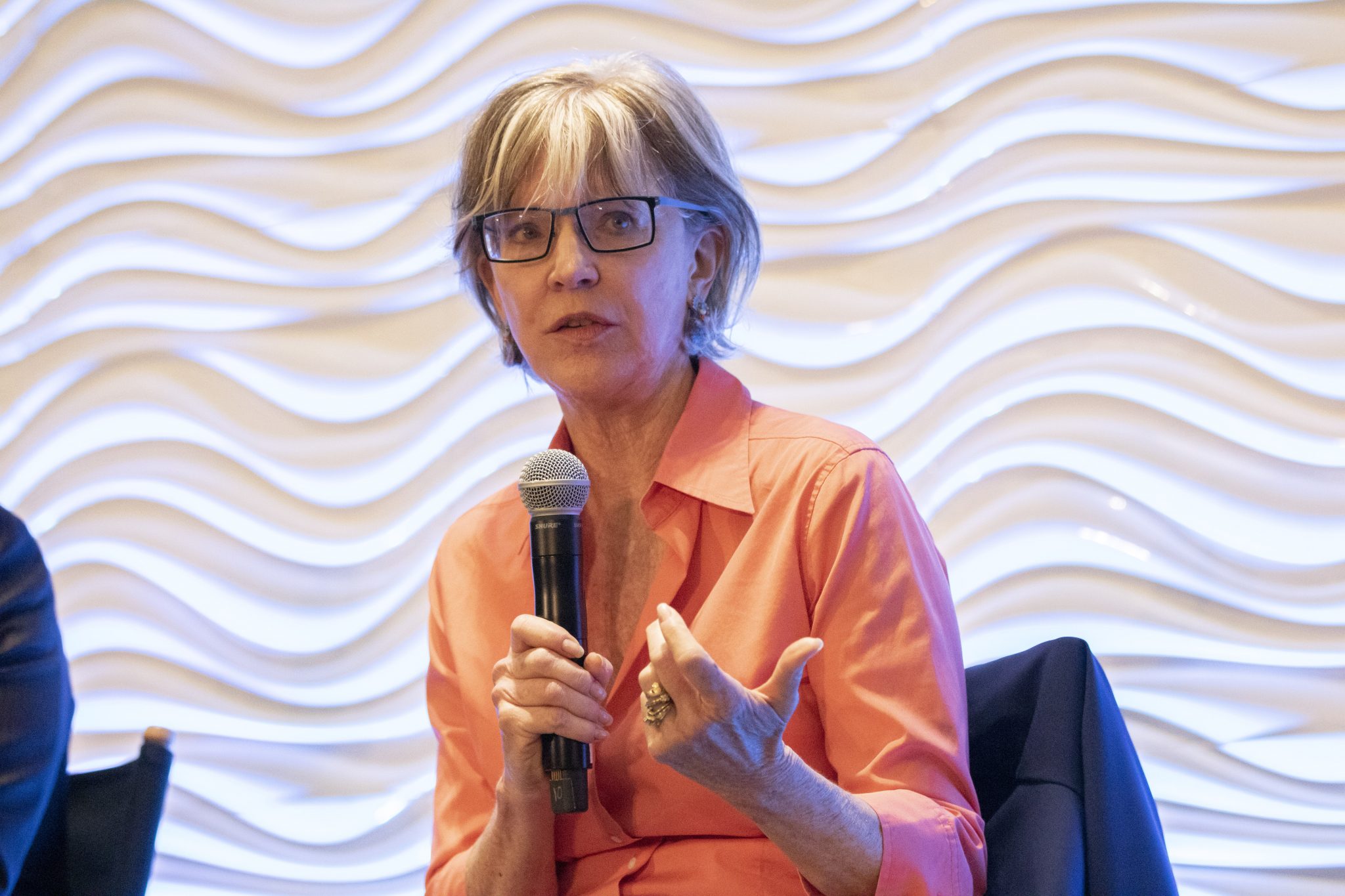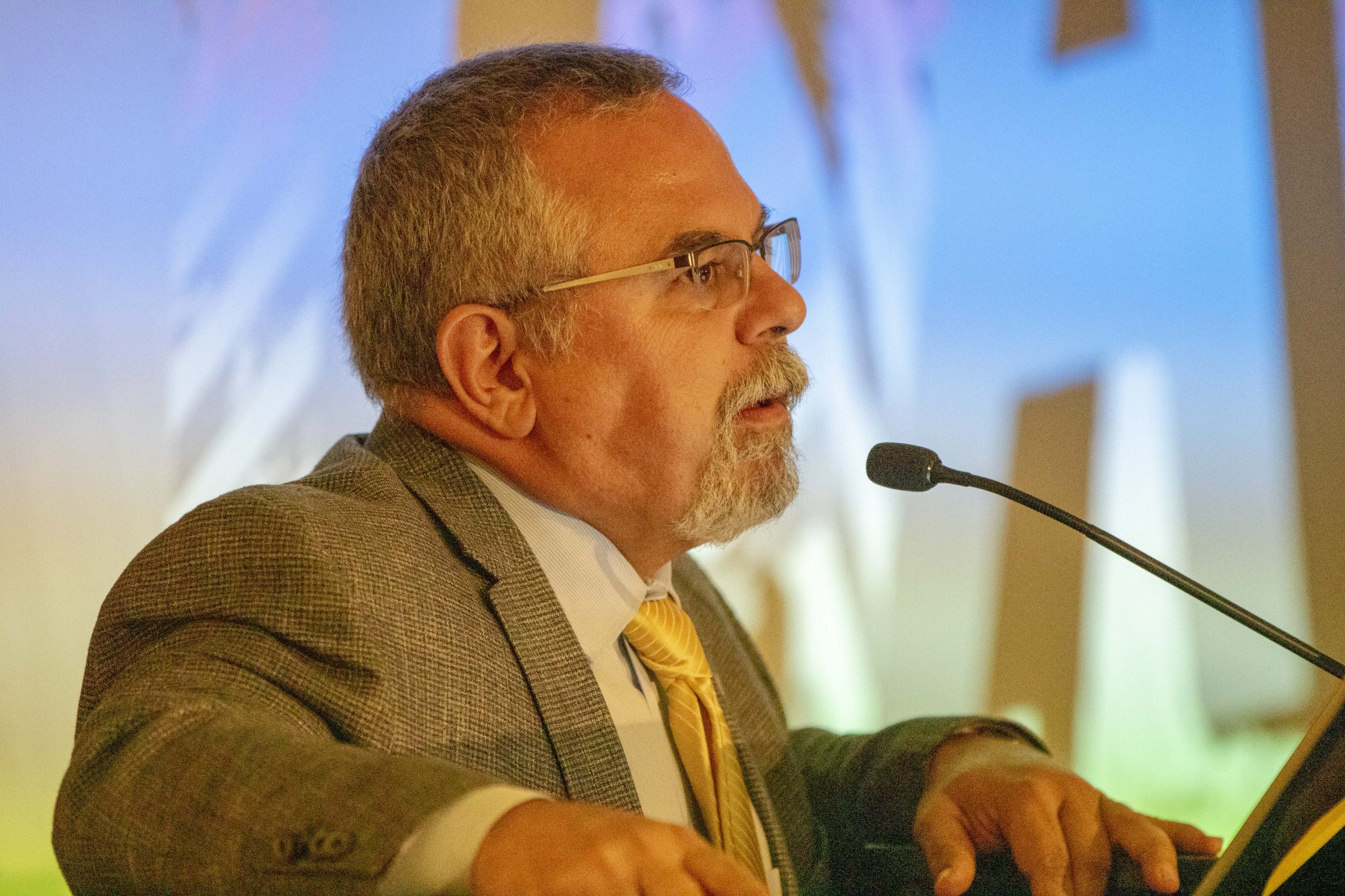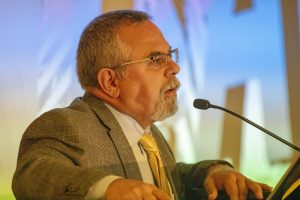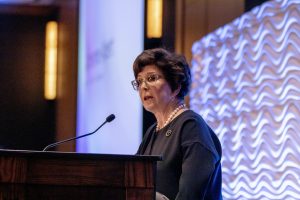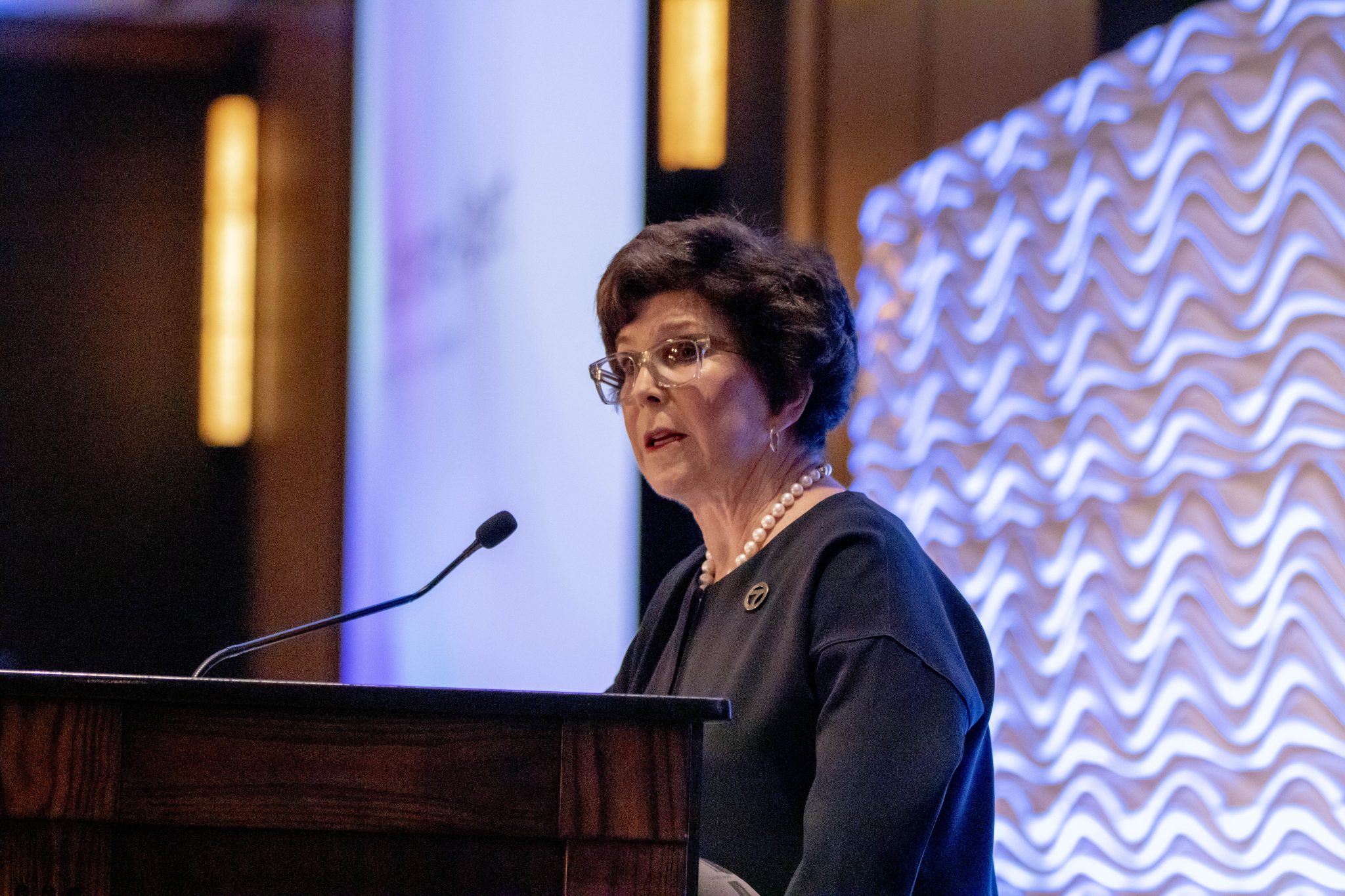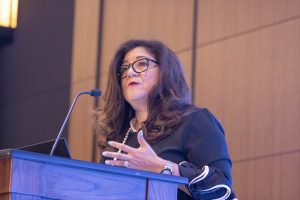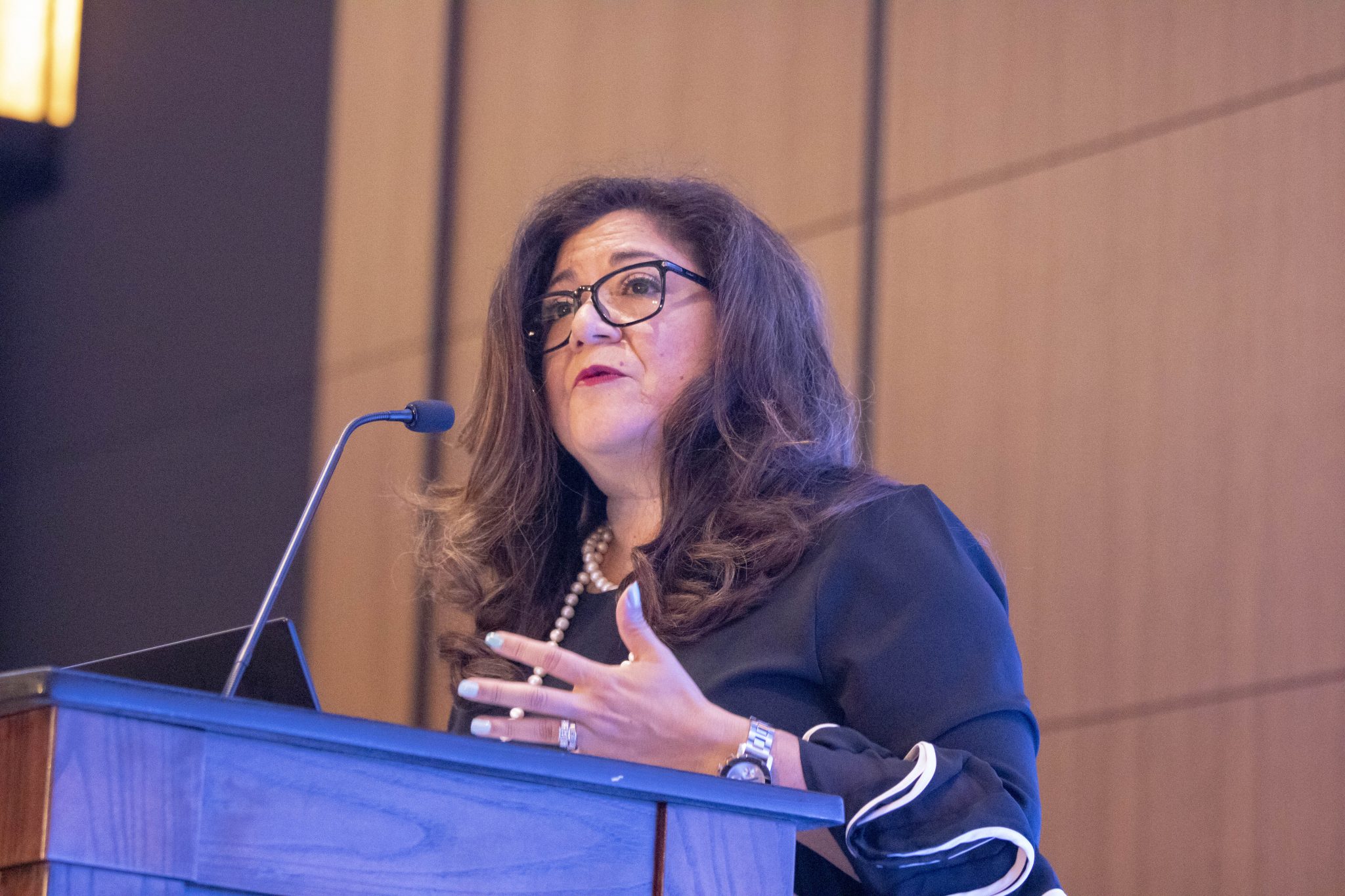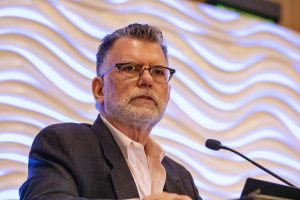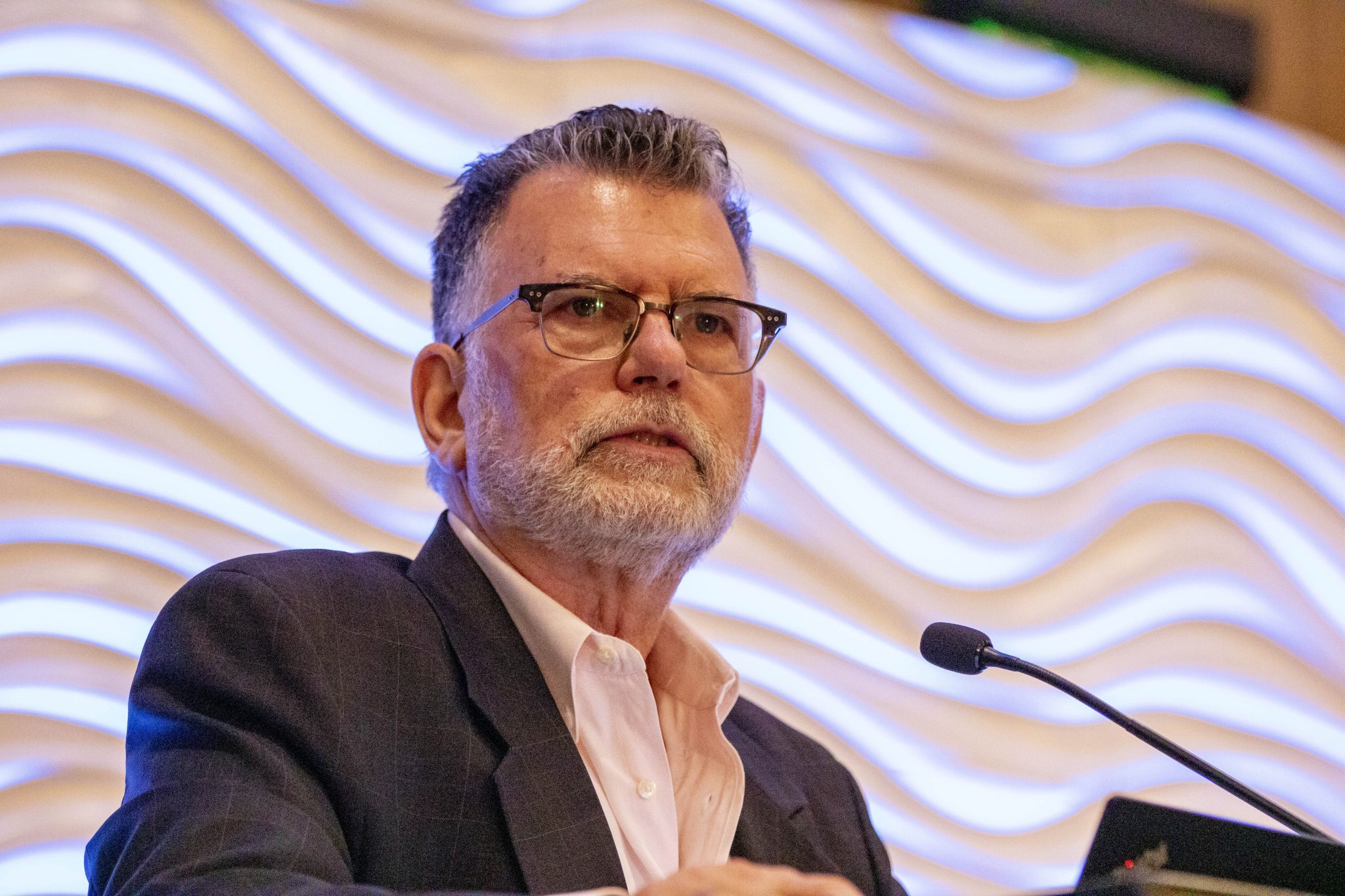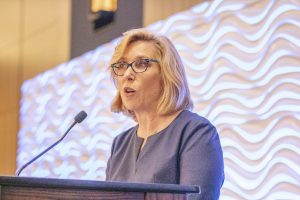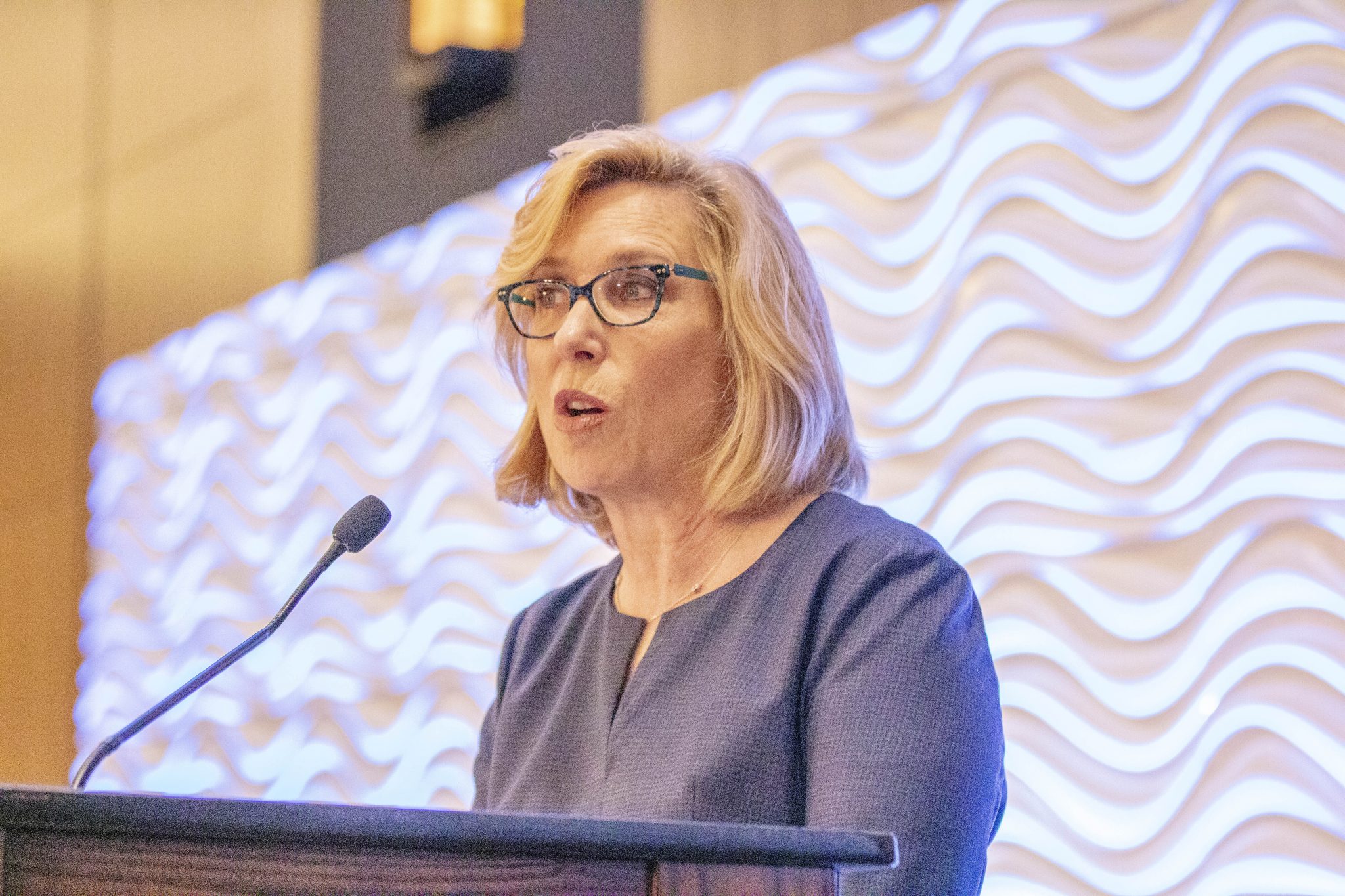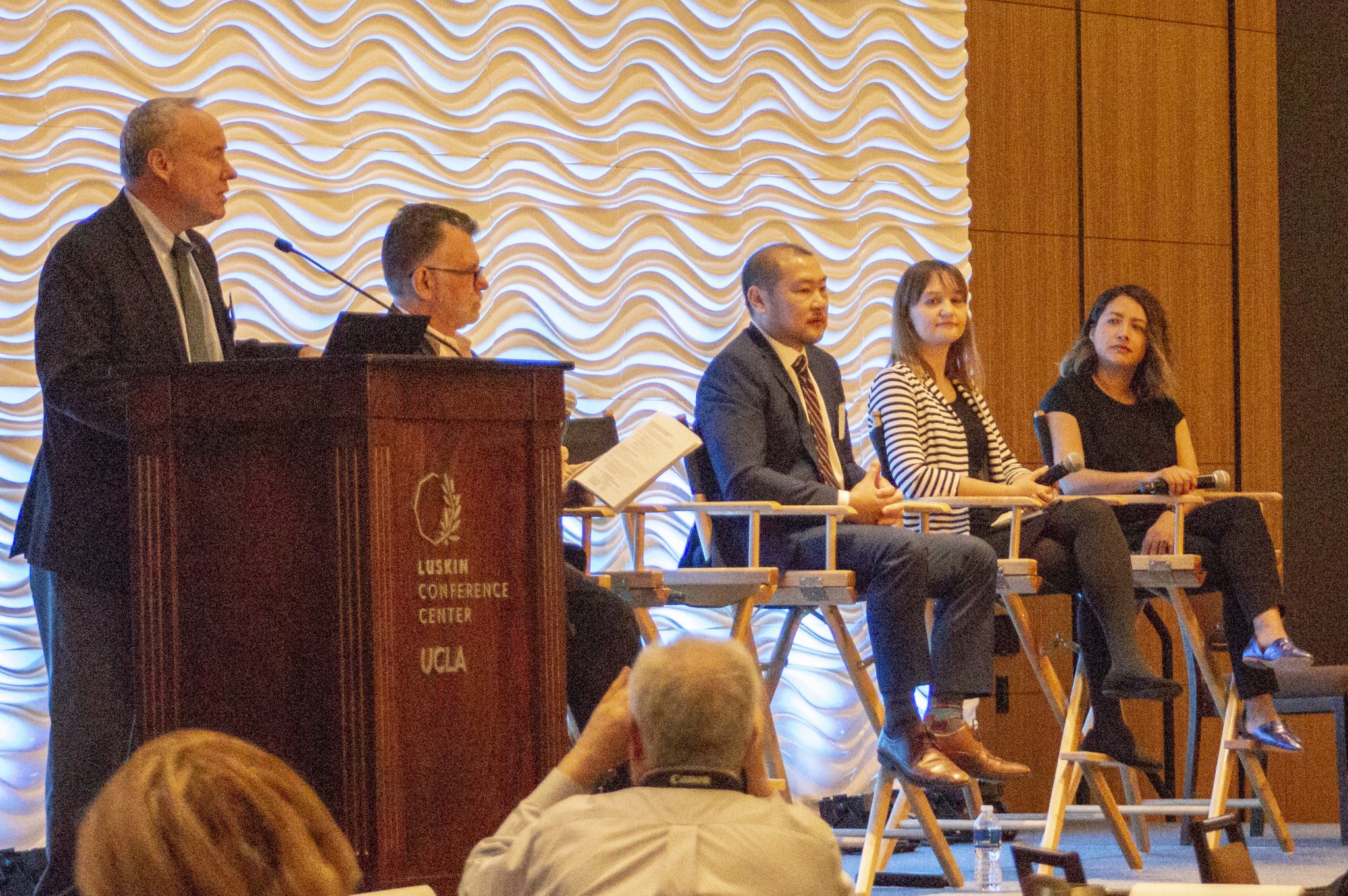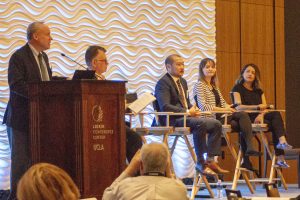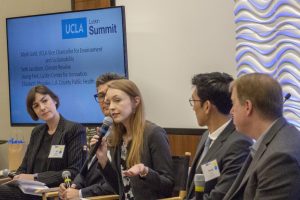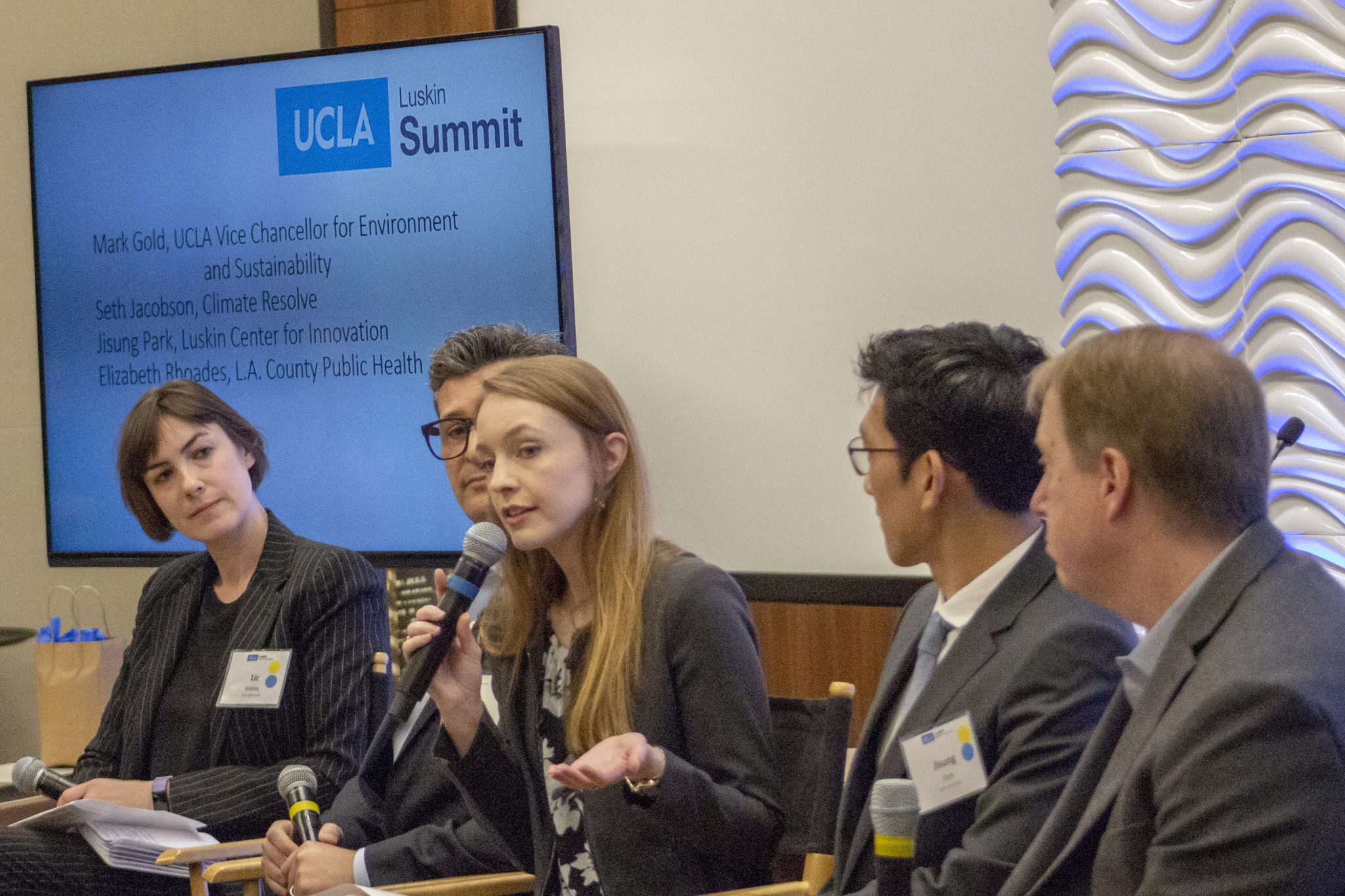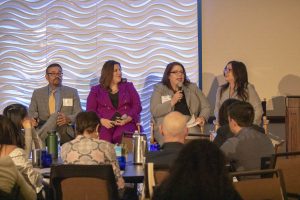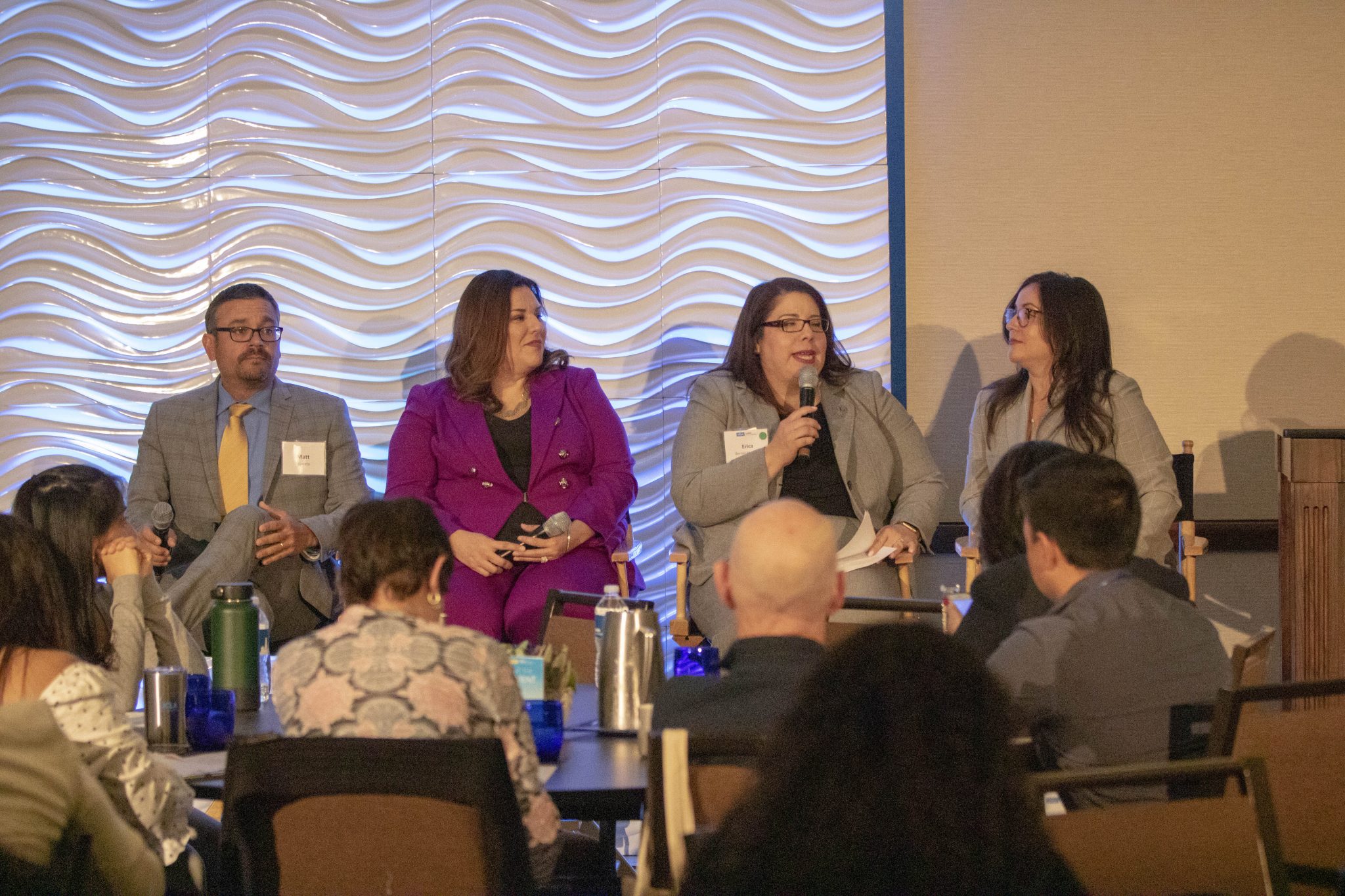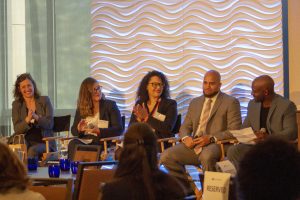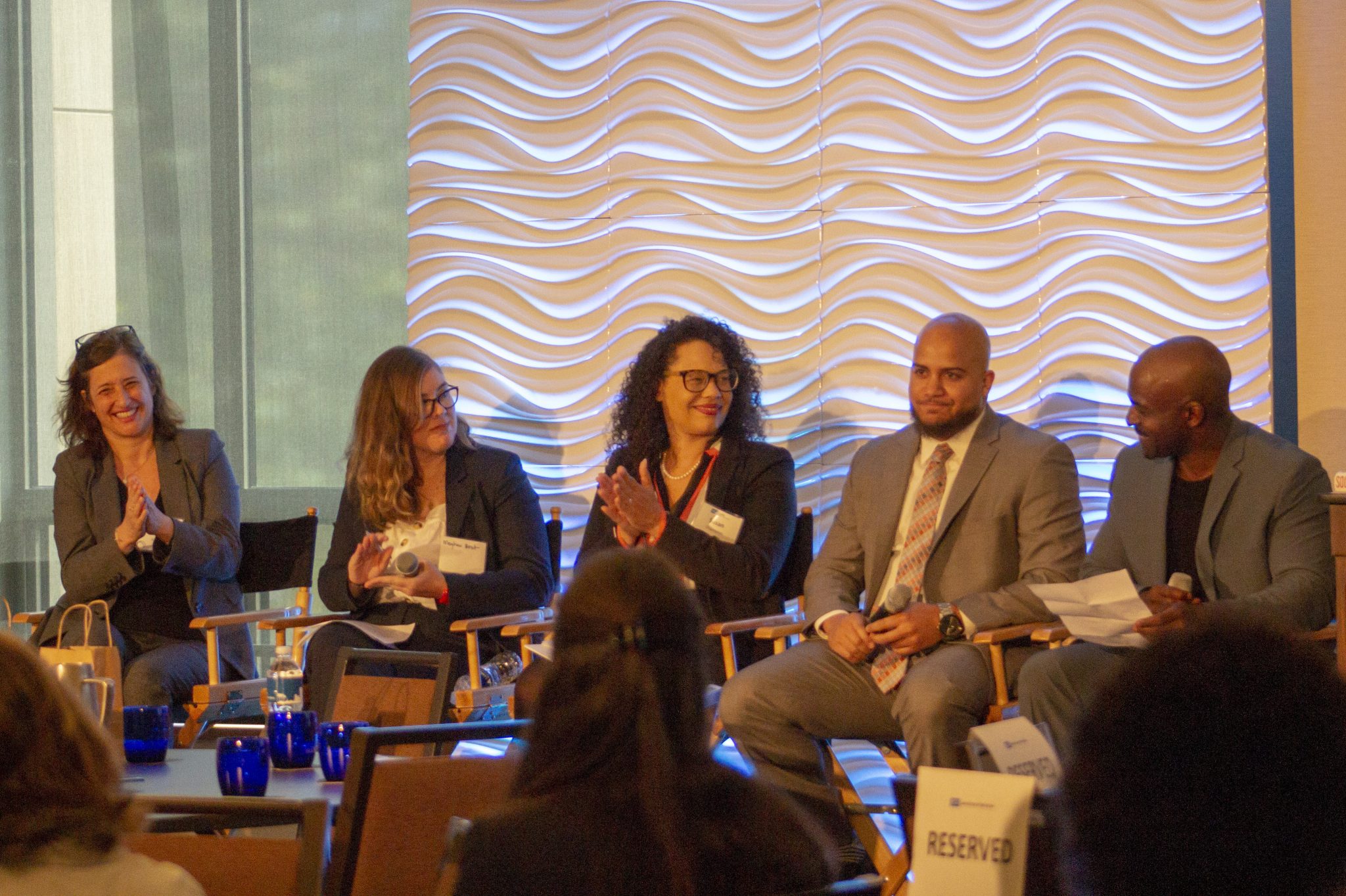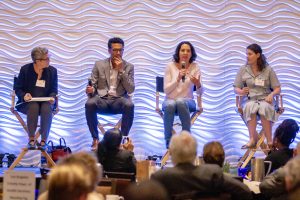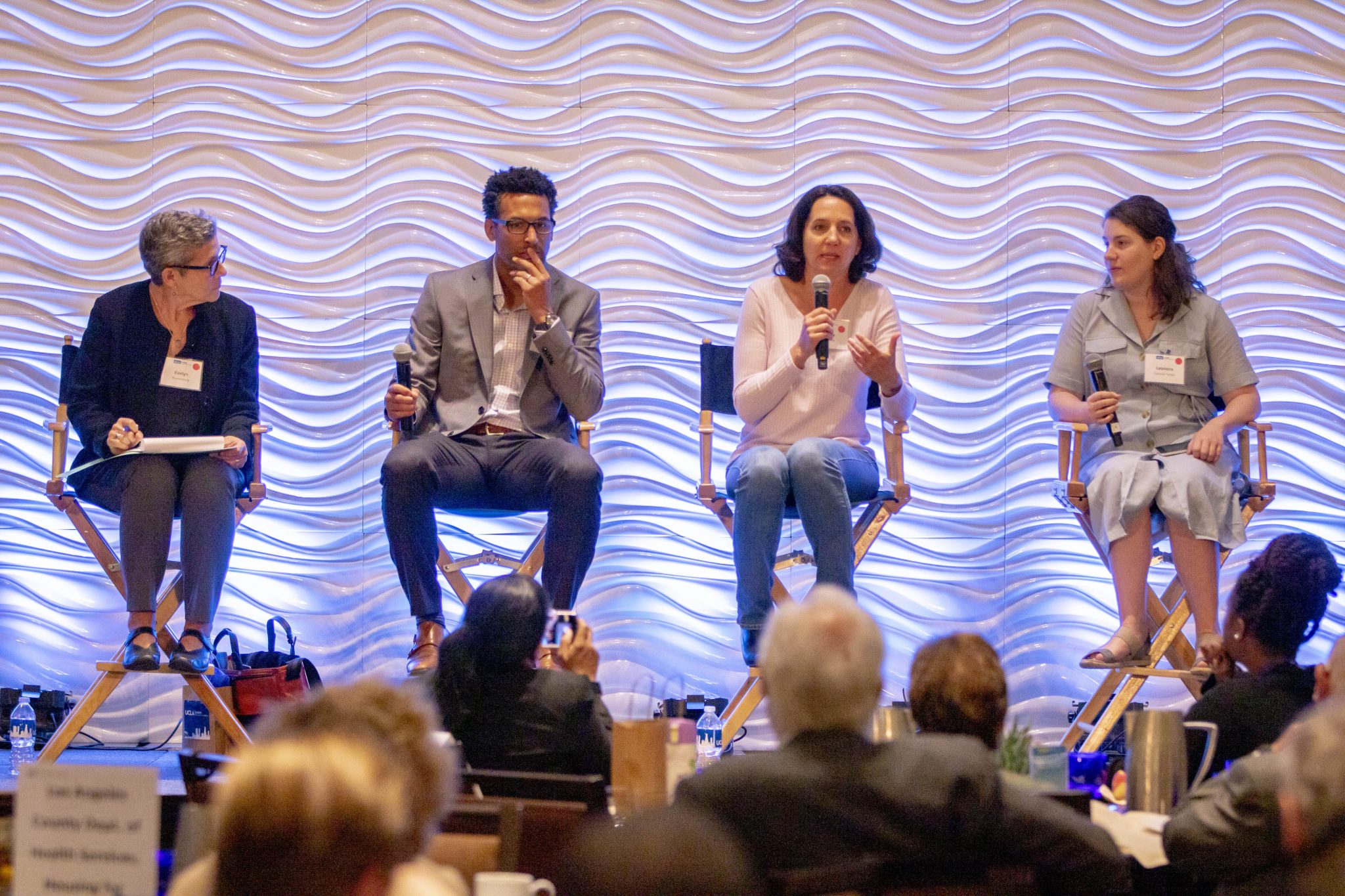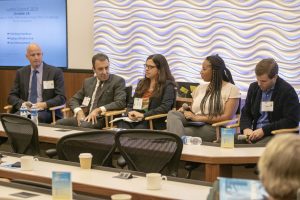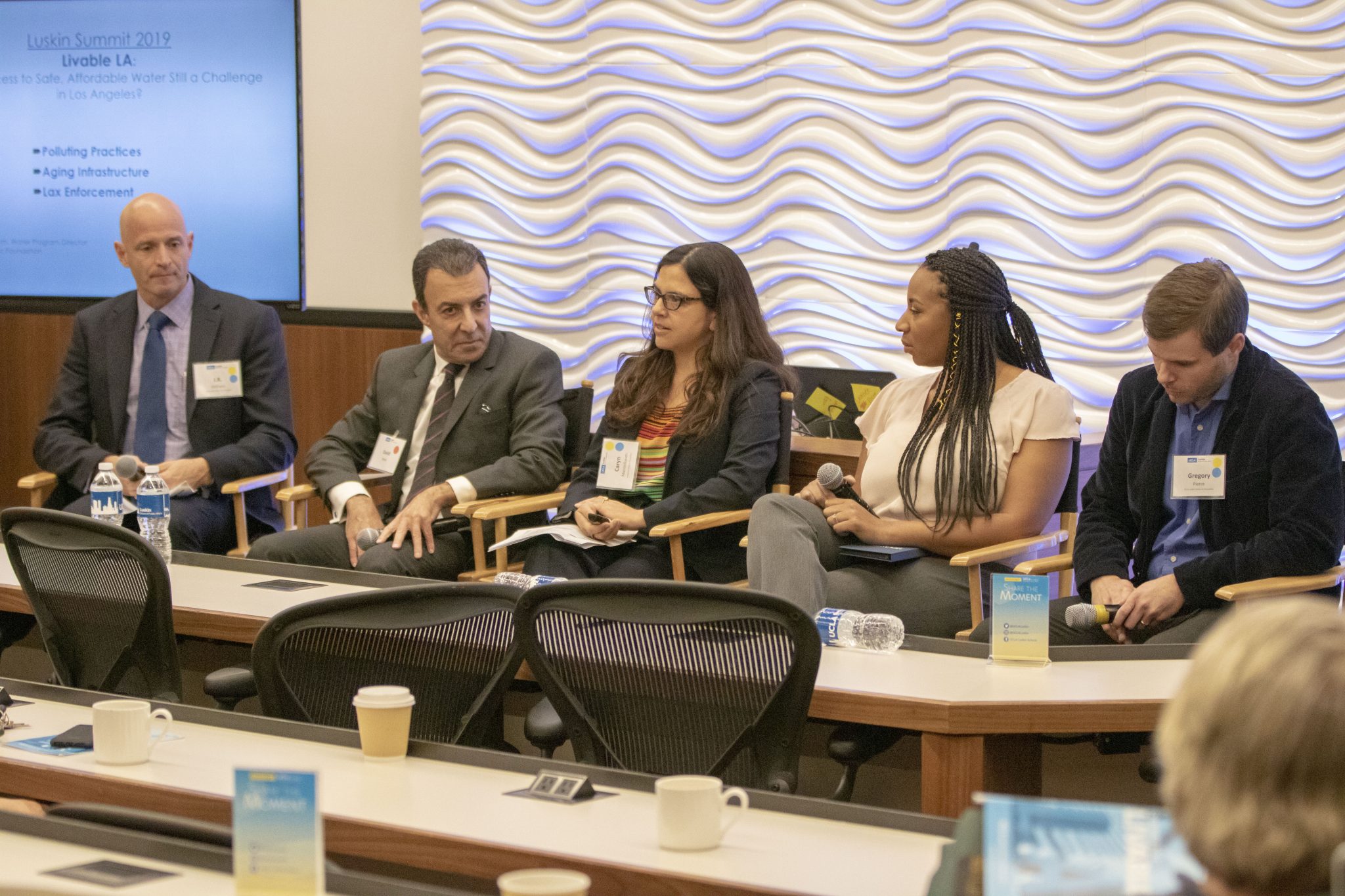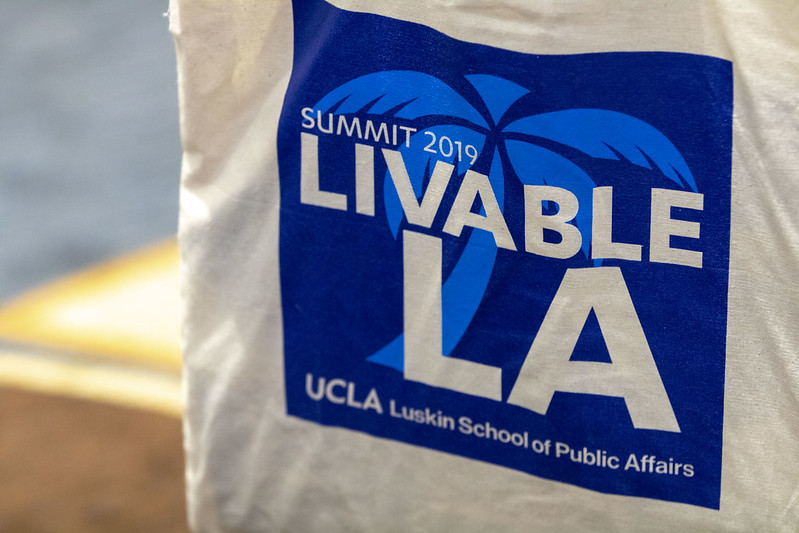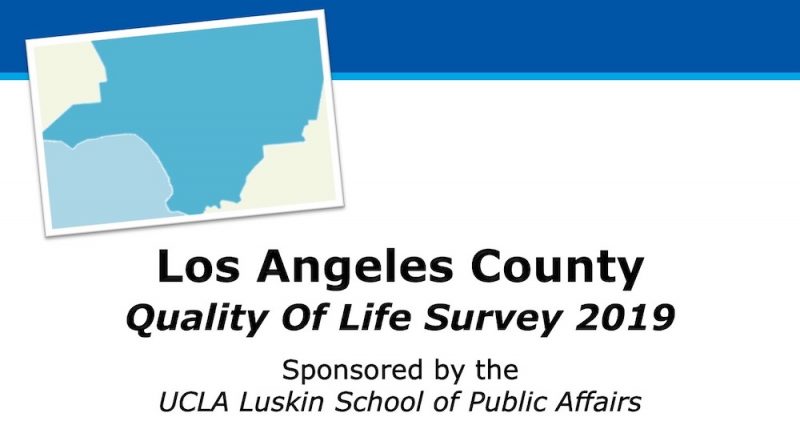‘Because of His Work, We’re Ready for This Fight’ Symposium honors urban planning pioneer Leo Estrada, a lifelong champion of equal representation
By Mary Braswell
The life and work of Leo Estrada, a pioneer in urban planning and a tenacious advocate for equal representation, inspired a daylong symposium at UCLA that examined demography, redistricting and the power of mentorship.
Estrada, associate professor emeritus at the UCLA Luskin School of Public Affairs, fought for voting rights, access to health care, and protections for elderly and minority populations until his death in 2018, just months after retirement.
The May 31 symposium and subsequent memorial gathering brought together many of those whose lives were touched by Estrada: fellow scholars, former students, family members, political figures and civic leaders who shared his commitment to social justice.
A keynote address about Census 2020 demonstrated how Estrada’s early strides in population research and his long service as an advisor to the U.S. Census Bureau resonate today.
“The history of the Census runs parallel with the trajectory of the Latino community and Leo’s career,” said Arturo Vargas, president and CEO of the NALEO Educational Fund, a national nonprofit that promotes Latino participation in civic life.
Calling the possible inclusion of a citizenship question on the 2020 Census form a “virulent challenge to our values and principles as Americans,” Vargas noted that efforts to suppress the count of Latinos are not new.
“This fight began decades ago and with fierce opposition,” he said. “One of our warriors along the way was Leo Estrada.”
Vargas pledged, “We will not be rolled over. We will not be scared away. We will not make our community invisible. …
“Fighting for a fair and accurate census is to continue Leo Estrada’s work and legacy. Because of his work, we’re ready for this fight.”
The symposium, organized by UCLA Luskin Urban Planning and the Latino Policy and Politics Initiative, explored the power of population studies to effect systemic change and explained the historical roots of today’s fight for minority-majority voting districts.
One panel focused on the importance of mentoring the next generation of leaders. To advance this goal, UCLA Luskin established the Leobardo Estrada Fellowship Fund, which supports Urban Planning students with financial need who are from backgrounds that are underrepresented in graduate education.
Estrada’s 40-year career was marked by innovation and leadership on and off the UCLA campus. He was one of the first scholars to teach courses about diversity and planning, and he helped guide the university as chair of its Academic Senate. In addition to his service with the Census Bureau, he was an advisor to organizations focusing on Latino empowerment, aging, health care, law enforcement and many other issues.
Following the symposium, speakers gave tribute to Estrada as a teacher, colleague, advocate, friend and family man.
Ivelisse Estrada described her husband as selfless, wise and patient with his family and “the ultimate professor” to his students.
“Leo was soft-spoken but the power of his words and his work were a catalyst for change,” she said. “Make him proud.”
Urban Planning Chair Vinit Mukhija harkened back to Estrada’s retirement celebration, saying he wished he had taken the opportunity to touch his colleague’s feet, a sign of respect in the Indian culture.
With this gesture, he said, “You get blessed. And in that blessing, the person who blesses you transmits their knowledge, their experience, their virtues. And I know all of us would love to have a little more of that from Leo.”
TRIBUTES TO LEO ESTRADA
REFLECTIONS ON LEO ESTRADA
Students, colleagues, friends and family of Leobardo Estrada gathered in May 2019 to honor the UCLA Luskin Urban Planning trailblazer. Many of his former students sent tributes from their posts around the world. Here are some of the remembrances:
“The sheer joy that he got from encouraging young people to explore … to relish in the act of discovery, and to grow as you challenge yourself to do something you’ve never done before — Leo knew just how to give young people confidence, knowing that he would be there to hold them gently and firmly.”
— MONICA LOZANO, president and CEO of College Futures Foundation and lifelong friend of the Estrada family
“When Leo said something nonchalantly, it meant you better do it. … I’m here to say, Leo, we did it for you.”
— JESUS GARCIA MA UP ’87, demographer and educator who was one of Estrada’s first geographic information system students
“As a doctoral student, he asked me, ‘Who do you want to be? And how will you use your degree to advance the field, to think critically about our world as urban planners, policymakers and activists?’ ”
— MICHELLE MAGALONG MA UP ’03, PhD UP ’17, University of Maryland postdoctoral fellow who took Estrada’s undergraduate, master’s and doctoral classes
“He was our Yoda in so many ways. … Whenever he spoke, it came from a sacred place, seeking what was needed to help women break out of poverty. … Because of Leo, women found their way, we all dreamt a little bigger.”
— BEATRIZ STOTZER, CEO of New Capital LLC who served with Estrada on the board of the nonprofit New Economics for Women
“He was brilliant at seeing the weaknesses and the strengths of individual people. …He was fearless but polite and kind and everything else in saying, ‘You’re making a huge mistake. This is not good for UCLA, this is not good for our students.’ ”
— JANICE RIEFF, UCLA history professor who served with Estrada on the university’s Academic Senate
“When he opened his mouth, it was like hushed silence in the crowd because people knew that wisdom was going to come pouring out of that brain and out of his mouth. … The way that he could look you in the eye with that very soft-spoken voice, with that compelling, precise, incisive logic, and just challenge you to be courageous, just challenge you to take it to the next level.”
— ROBERT ROSS, president and CEO of the California Endowment, where Estrada was a founding member of the board
“He spoke to you about excellence as a scholar by asking you to look at your work from the larger perspective of making a life path, a real contribution to others and to bringing a deeper human meaning to all your projects. He made time to talk about music, poetry and life before talking about your dissertation. He put planning in the real context of a rich, full life.”
— ROHINI TALALLA, MA UP ’77, PhD (ABD) ’15
“Leo, like many others I am so blessed to have you as my mentor, friend and brother. You impacted the lives of so many of your students and colleague with your humility, love, empathy and selflessness that the void is immense.”
— ALEXANDRE BABAK HEDJAZI, PhD ’07
“Leo was extremely peaceful and patient when he was walking me through my Ph.D. His influence is still with me when I work with my own Ph.D. students.”
— JUNG WON SON, PhD ’04
“Leo was more than a mentor — he was a friend, an oracle, a sounding board, a reading partner and a role model for hundreds of Latin@s who dedicated their lives to shaping more equitable cities. I still feel Leo’s presence each day. His life force came from living with an open heart and giving freely of himself to others. His genuine demeanor always made time for his students, and made me, as a disabled person of color, feel included. He would remind me that I had a role and a contribution to make in the academy.”
— VICTOR PINEDA PhD ’10
“He taught me to meet people where they are, and to see and support their vision. It is this gift that is perhaps most incredible to me, and I strive to carry on that legacy. Being understood, not just for what you do but for the vision that drives it — this changed my life. Leo saw and supported me, and I hope to be able to pass that gift on to my own students.”
— MARCIA HALE, PhD ’18
“As for so many others who had the good fortune to be his student, Leo was a lantern in the dark and a compass in the storm, an unassuming and steadfast role model. How lucky we were to have had him in our lives. I hope that we are all able to honor Leo’s memory, by paying it forward, again and again.”
— MARLA PETAL, PhD ’04
“Unlike most professors who are predominately skilled at talking, Leo is a gifted listener. He truly ‘hears’ you and listens without judgment. … His empathy and respect for students of color, first generation college students, international students, students who are parents and female students has made such a difference to transform students to graduates and working professionals.”
— KARNA WONG, PhD ’15
“Leo was a constant champion for my research on the then unusual topic of faith-based development. … My fondest memories of Leo are when we met to go over my latest chapters while writing the dissertation. As a full-time, working mom, it was sometimes difficult to make the trek from my downtown office to Westwood. From time to time, Leo would come to my office, sit in a conference room, and go over my latest work. Leo’s approach was anything but typical.”
— LEZLEE HINESMON MATTHEWS, PhD ’04
“He was always kind and thoughtful and completely selfless. He saw a strength in me that I could not see and he empowered me to unleash it. … We should all try to channel Leo and promote tolerance, inclusiveness, collaboration — with data, he would say. Leo was soft-spoken but the power of his words and his work were a catalyst for change. Make him proud.”
— IVELISSE ESTRADA
AUDIO FROM THE MAY 31 MEMORIAL GATHERING
Listen to audio of the May 31 memorial gathering following “Demography, Redistricting & Power,” a symposium honoring Leo Estrada.
View photos from the symposium and memorial gathering on Flickr.
